Adam Galloway, 19, United Kingdom
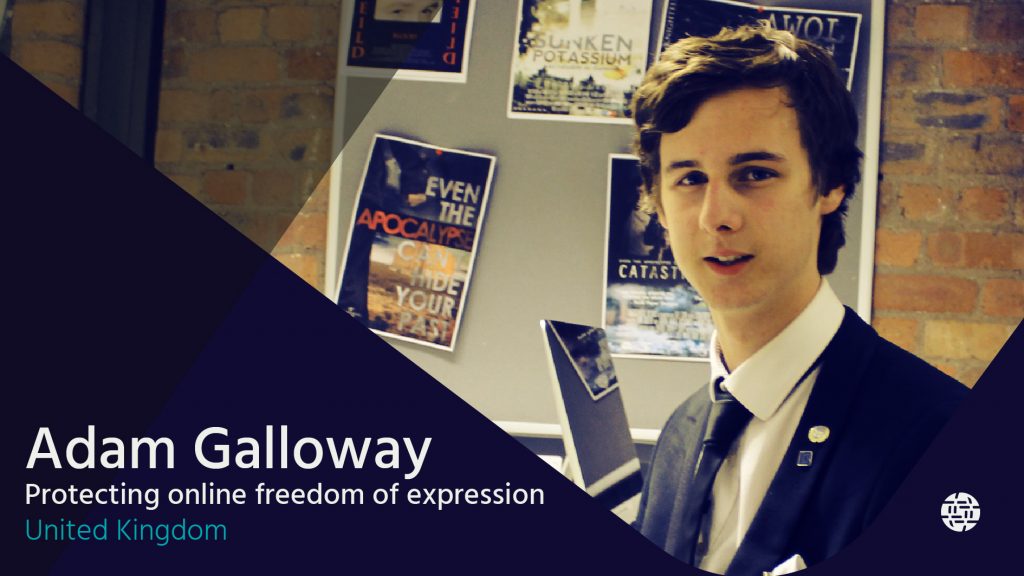
Protecting online freedom of expression
Adam’s ongoing work as a human rights advocate led to his idea for a new social network based on the fundamental principles of online freedom, privacy, and security. The network is unique in that it protects users by not allowing advertisers to have access to their personal information.
Adam also invests the profits of his software and web development business into other projects that seek to improve society. Part of this funding goes to young entrepreneurs and youth enterprise as an investment in future Internet advocates and leaders.
The Internet is central to Adam’s efforts and has enabled him to mobilise communities, reach key influencers, and communicate his message of online freedom of expression and speech to a broad audience.
Akah Harvey N, 25, Cameroon
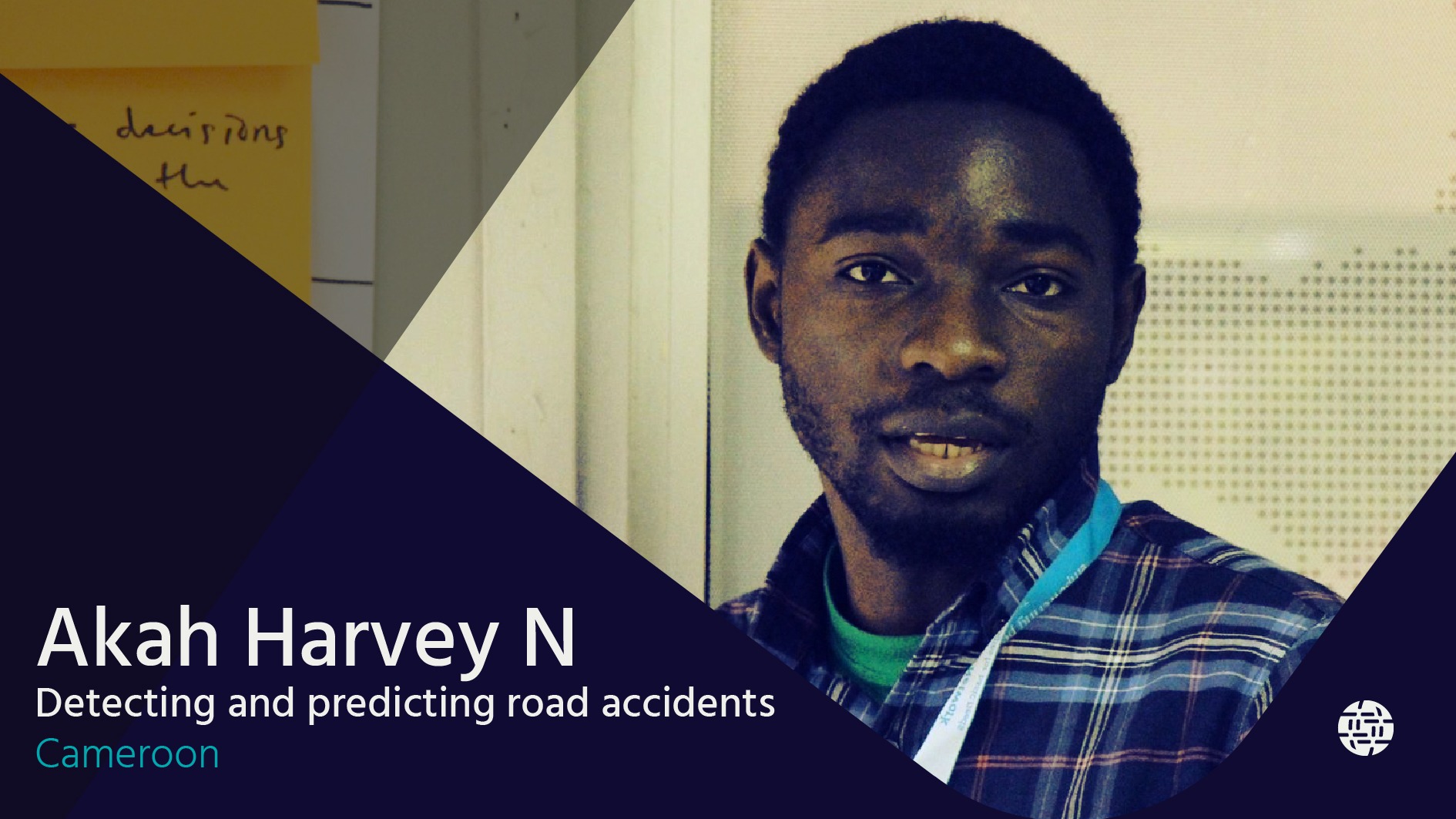
Detecting and predicting road accidents
Akah and his team of fellow engineers developed Traveler, an application that provides real-time insight on how well a car is being driven on the highway. Traveler uses big data to track users’ journeys and contact emergency teams and family members if an accident occurs. It allows drivers to report difficulties along the roads, which are passed along to appropriate authorities with the goal of making roads safer. The solution seeks to improve driving habits on the road, especially in sub-Saharan Africa where car accidents are a leading cause of death.
To date, the solution has been deployed in several urban areas of Akah’s home country of Cameroon. He is currently working with the Ministry of Transport to further deploy the solution throughout the country.
Akshay Makar, 24, India
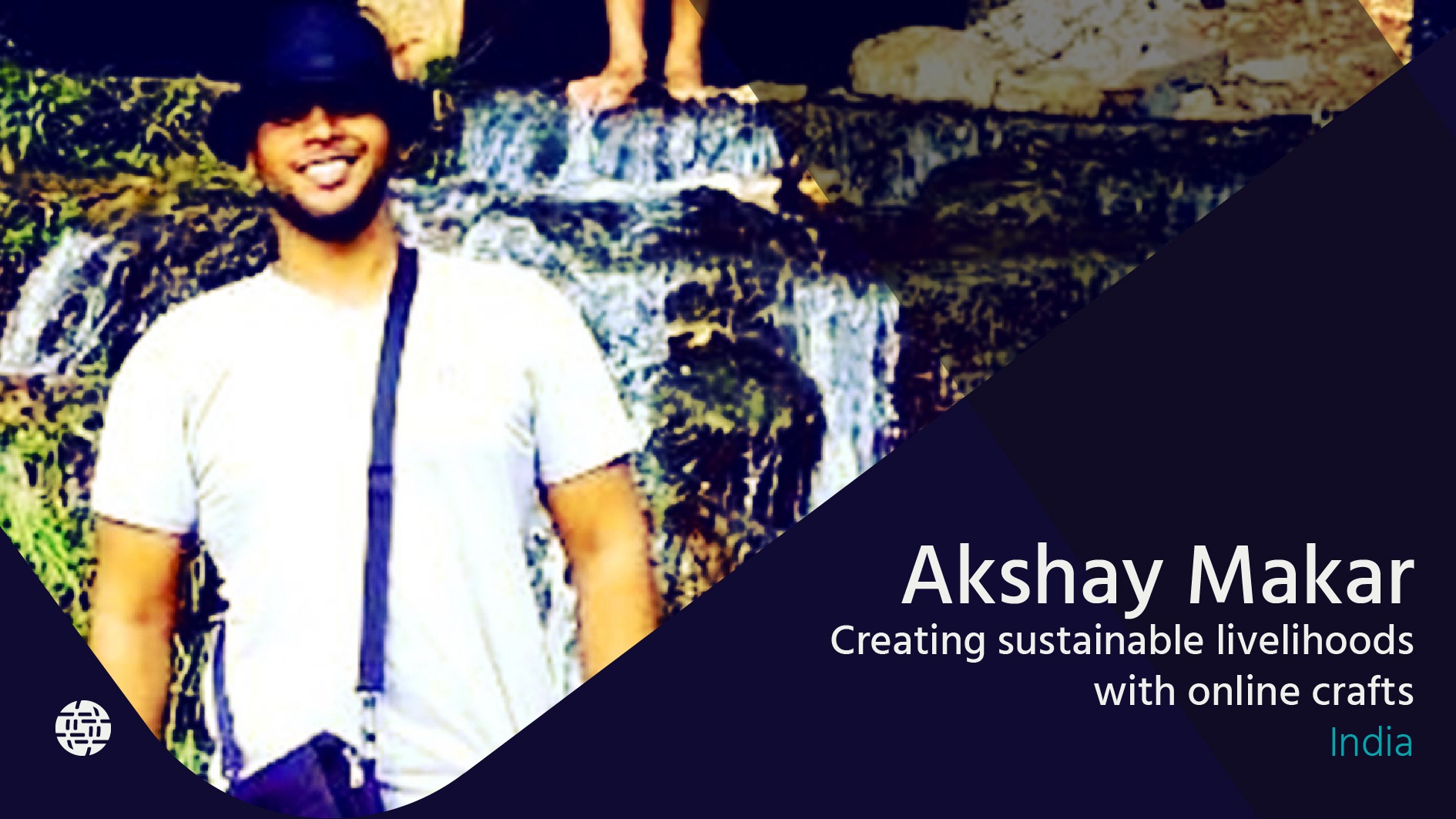
Creating sustainable livelihoods with online crafts
Akshay works with India-based Handscart.com, an e-commerce platform where more than 1000 artisans and rural craftsmen from around the world sell their handmade crafts.
His outreach in rural communities helps local groups and artisan cooperatives effectively use the online platform. In his in-person educational sessions, he teaches basic computer and Internet concepts, information on how products are sold online, and the basics of design and marketing. Akshay also helps artisans join the online marketplace by helping them to create accounts, set up their profiles, and showcase their products for sale.
Handscart has benefitted communities in six countries and India by reducing poverty and gender inequality and creating opportunity for sustainable livelihood.
- Find out more about Handscart
Alec Foster, 25, United States
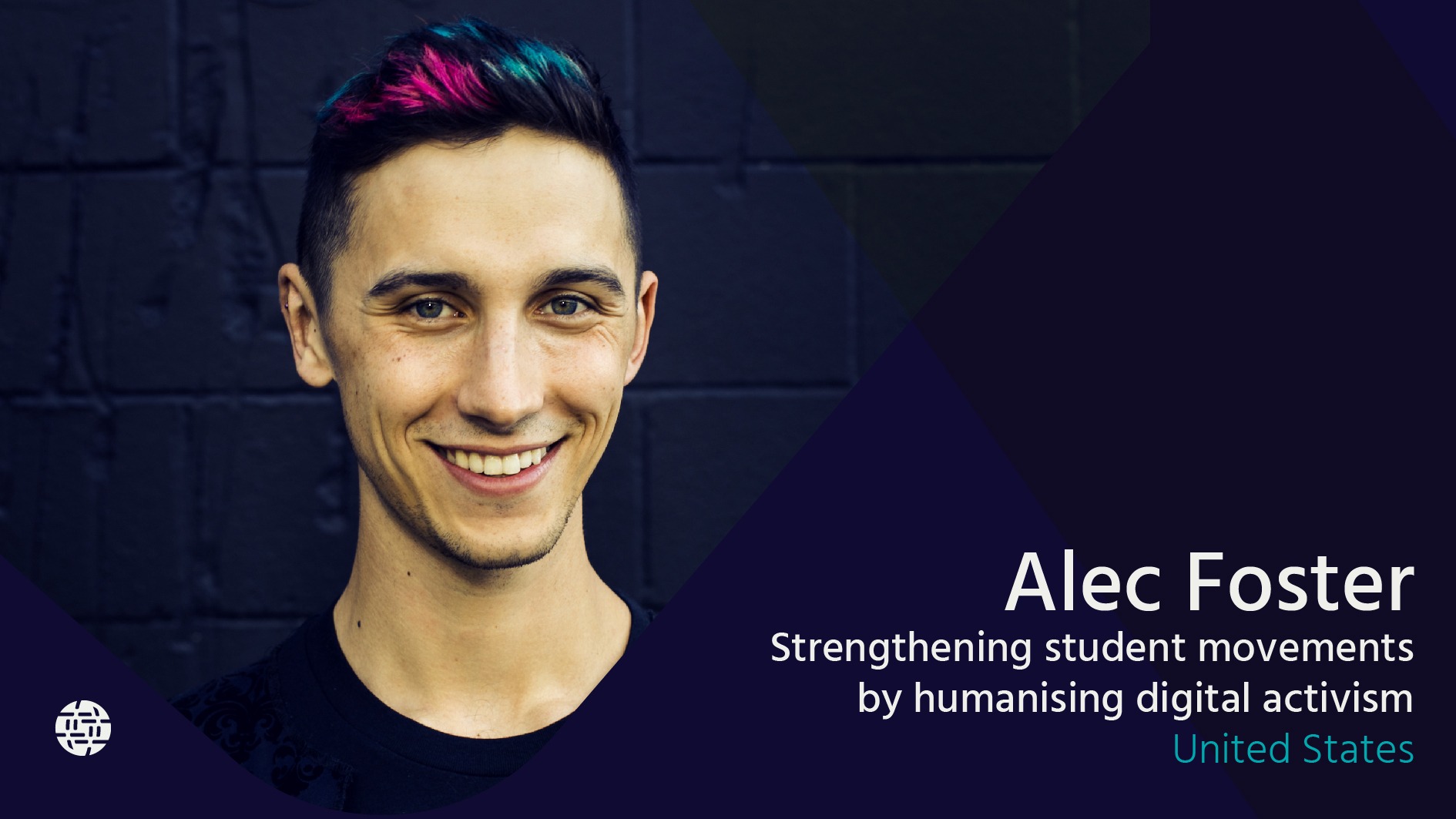
Strengthening student movements by humanising digital activism
As a former National Security Agency (NSA) trainee and civil liberties activist, Alec saw the promise of an open and secure Internet undermined by dragnet surveillance. Realising the need for student involvement in Internet policy decisions, he applied a new organising model combining activism on college campuses with the decentralised structure of the Internet, and created the Student Net Alliance.
The Student Net Alliance created and distributed templated, school-level actions, such as event and hackathon resources, as well as localised petitions. It also provided open letters, activist toolkits, and scorecards for students to deploy in their communities as part of global campaigns.
Taking full advantage of modern tools and a digitally-fluent audience, Alec’s non-profit organisation brought over 300,000 students and alumni into the political process with actions that span the ladder of engagement and target decision makers in each community.
Ash Ball, 23, Australia
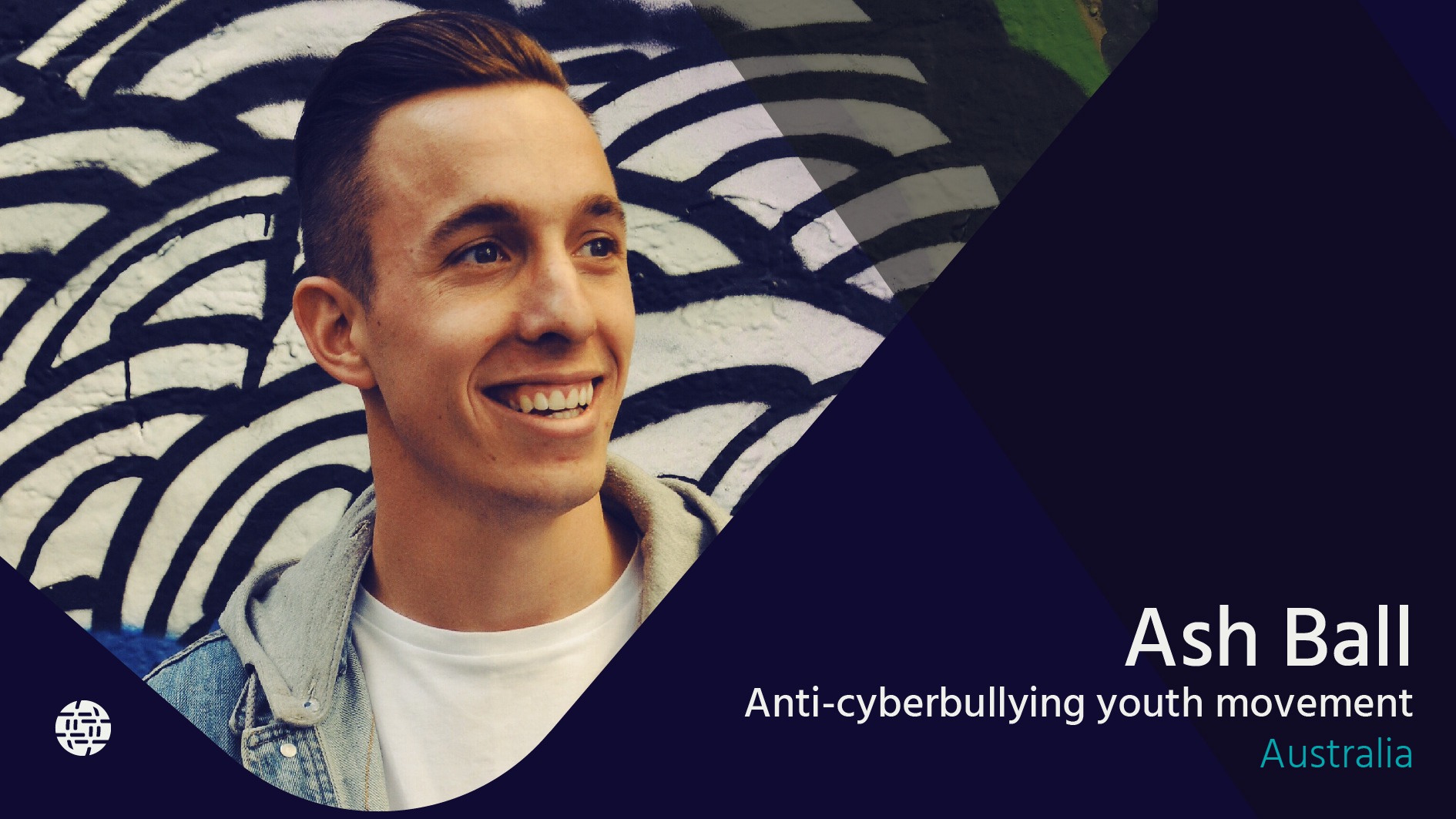
Anti-cyberbullying youth movement
Ash is a member of the Project Rockit team, a youth-driven movement that combats cyberbullying in Australia. Each year, Ash and the team lead large-scale, interactive workshops in schools, empowering thousands of young people to stand up to online hate and prejudice.
To expand the programme’s reach beyond that of face-to-face workshops, Ash worked to develop complementary online content to reach a wider audience. In partnership with Google, the team launched Project Rockit TV. Available via YouTube, the videos focus on privacy, sexting, hate in gaming, and pressures for perfectionism. Now even more students, parents, and teachers have access to this important educational content.
Ash’s work is a clear example of how digital media can be used to spread kindness and overcome negativity.
Asha Abbas, 18, Tanzania
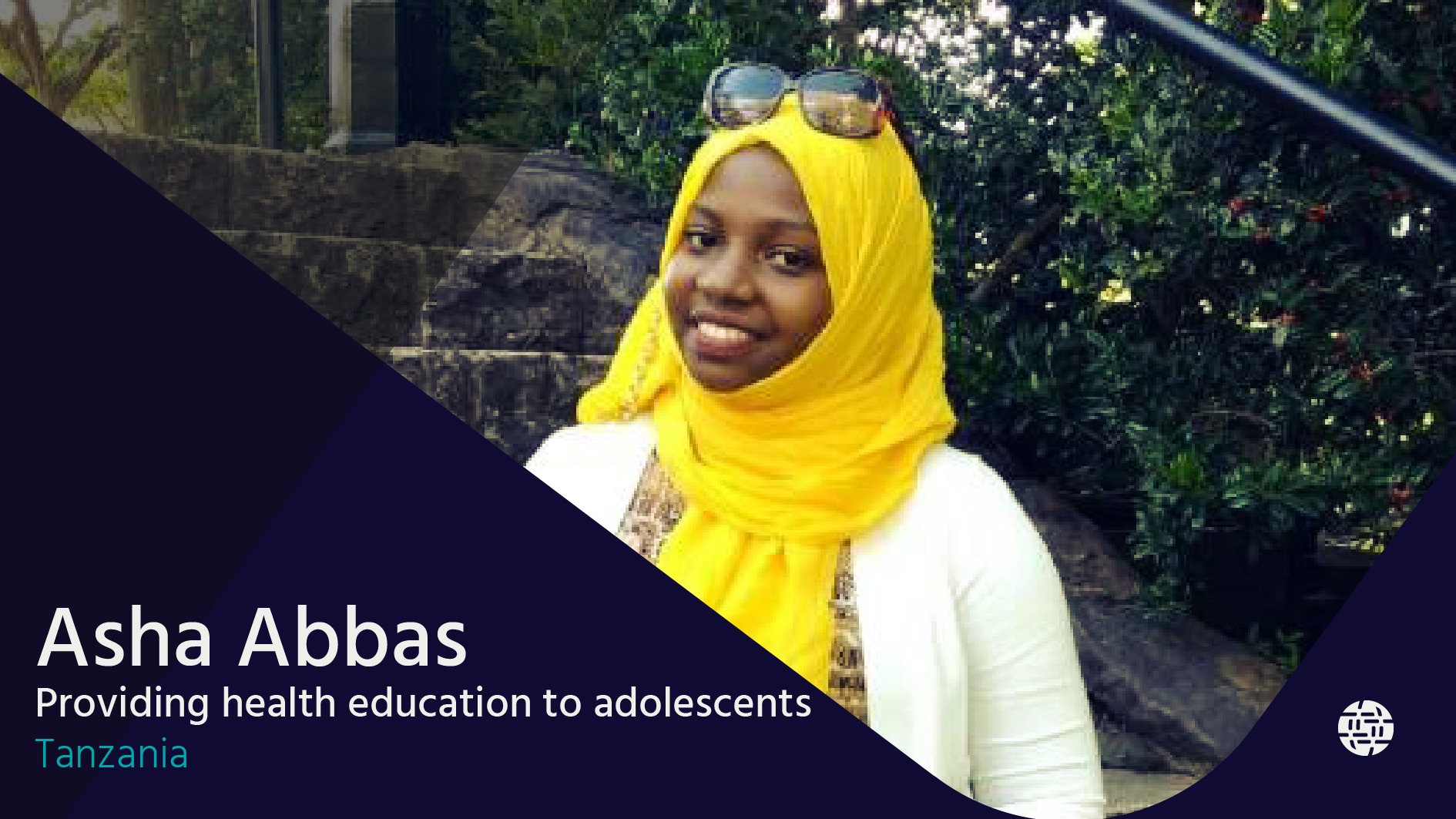
Providing health education to adolescents
Growing up in Dar es Salaam, Tanzania, Asha saw too many of her peers dropping out of school due to pregnancy, unsafe abortions, or HIV/AIDS. She felt compelled to help her community by addressing the culturally-taboo topic of sex through health education for youth.
Asha started an online platform called Aurateens where teenagers can access information and personally communicate with sexual health experts. The Internet enables connection with hundreds of teens each month and the platform has had a positive impact on more than 1,000 young women to date.
She is now partnering with other social organisations committed to this cause to propel her initiative and bring sexual health education to more girls and young women.
Augusto Mathurin, 25, Argentina
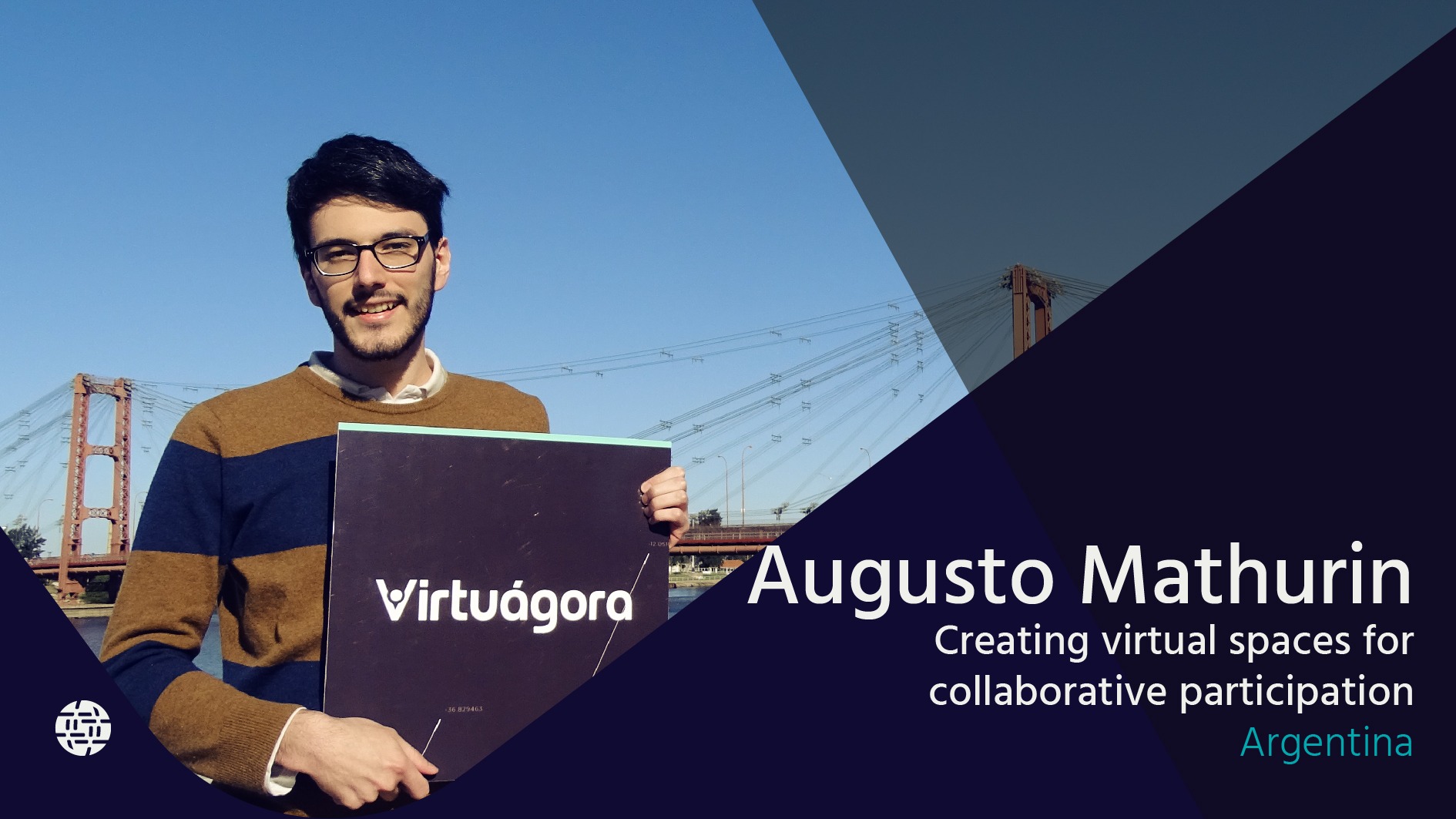
Creating virtual spaces for collaborative participation
Augusto has a dream: a world where everybody has the opportunity to participate in the decisions that affect their community.
With this in mind, Augusto developed an open source digital participation platform as part of a university project. The main goal of this platform, called “Virtuágora,” was to create a common space in which citizens’ opinions and their representatives’ proposals could converge. The concept was derived from the Greek agora – the central square of ancient Grecian cities where citizens met to discuss their society.
Currently, Augusto is working on making the platform as flexible as possible so that it can be easily adapted to the needs of varied environments, from small student centers to large national entities.
Biddemu Bazil Mwotta, 23, Uganda
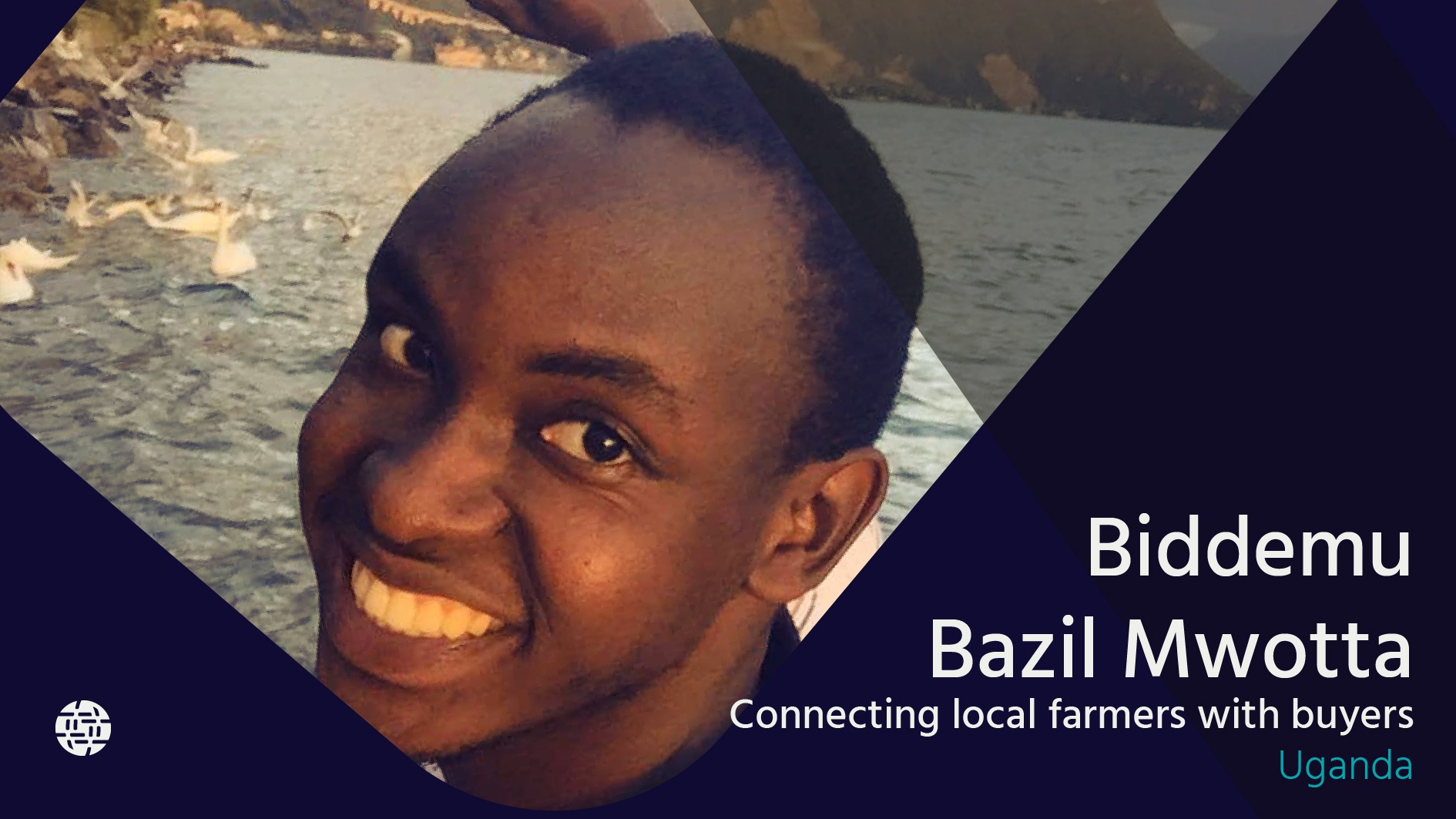
Connecting local farmers with buyers
Uganda’s smallholder farmers traditionally rely on middlemen to connect with larger markets, which has greatly constrained their profits. Biddemu introduced a mobile agribusiness app, AgroDuuka, that connects farmers directly with buyers – anytime, anywhere. This tool creates a market for local farmers where there was none before, and eliminates the cost of working through intermediaries.
To date, AgroDuuka has connected more than 800 smallholder farmers from 36 villages to buyers throughout Uganda. He is continuously pursuing opportunities to broaden its impact. For example, a recently-secured partnership with the Uganda National Farmers Federation will make the platform accessible to a network of more than five million farmers.
- Find out more about AgroDuuka (Facebook Page)
Bidyabati Meher, 22, India
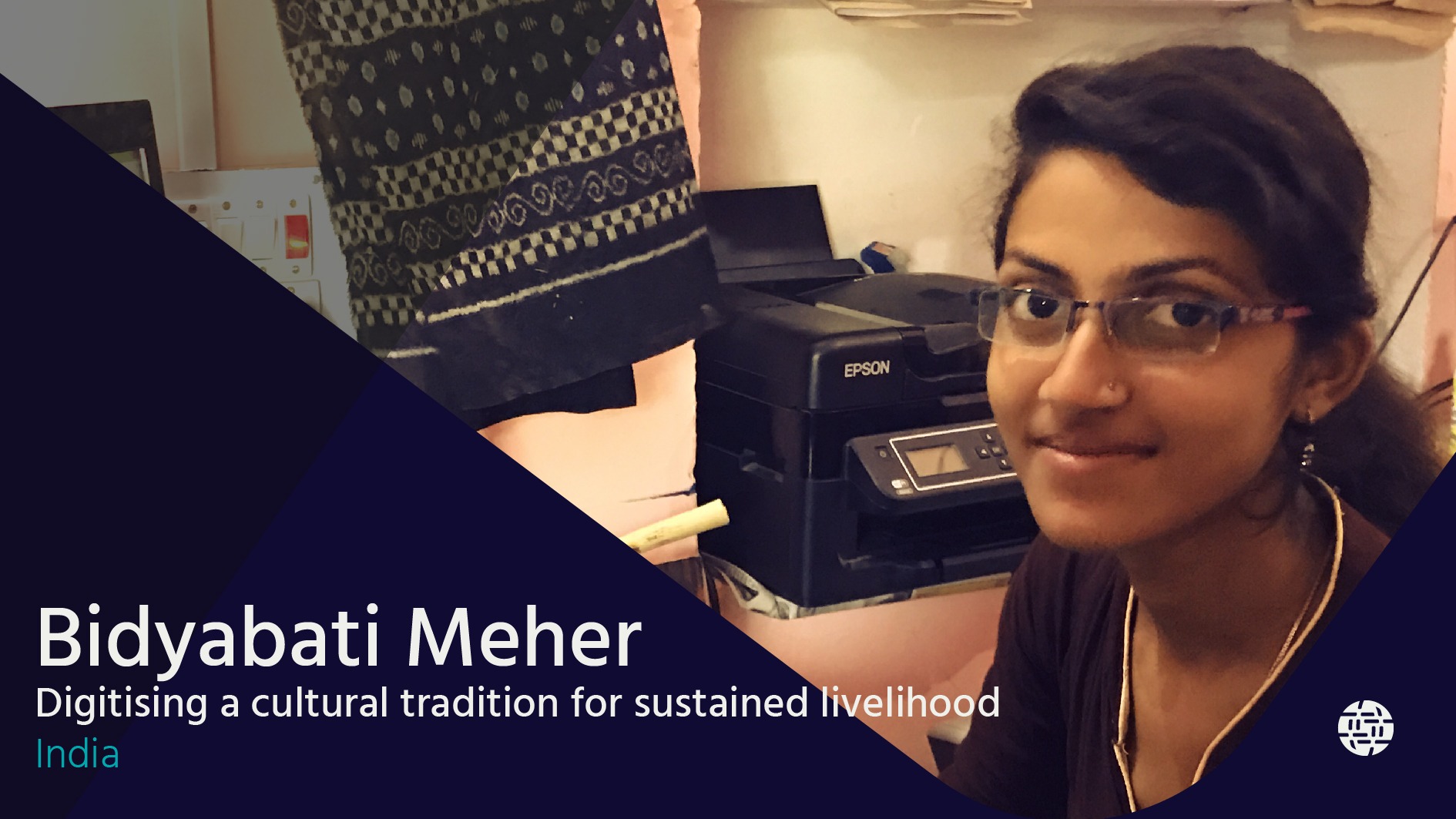
Digitising a cultural tradition for sustained livelihood
Bidyabati’s village of Barpali, in the Indian state of Odisha, is home to about 20,000 handloom weavers, famous for their handwoven ikat sarees. The weavers lacked the education, business practices, and modern technologies to earn a decent livelihood.
Traditionally, most designs from weaver households in Barpali are based on memory and mental calculations, as they are throughout India. This restricts experimentation and innovation in designs. Bidyabati wanted to give the weavers freedom to experiment.
With support from the Digital Empowerment Foundation, Bidyabati became a digitally-literate weaver, allowing her to introduce various digital interventions in the community. She is part of a mobilisation team that encourages more weavers to adopt digital tools, and trains scores of youth from her community in digital literacy and design.
Cintia Padilla, 18, Honduras
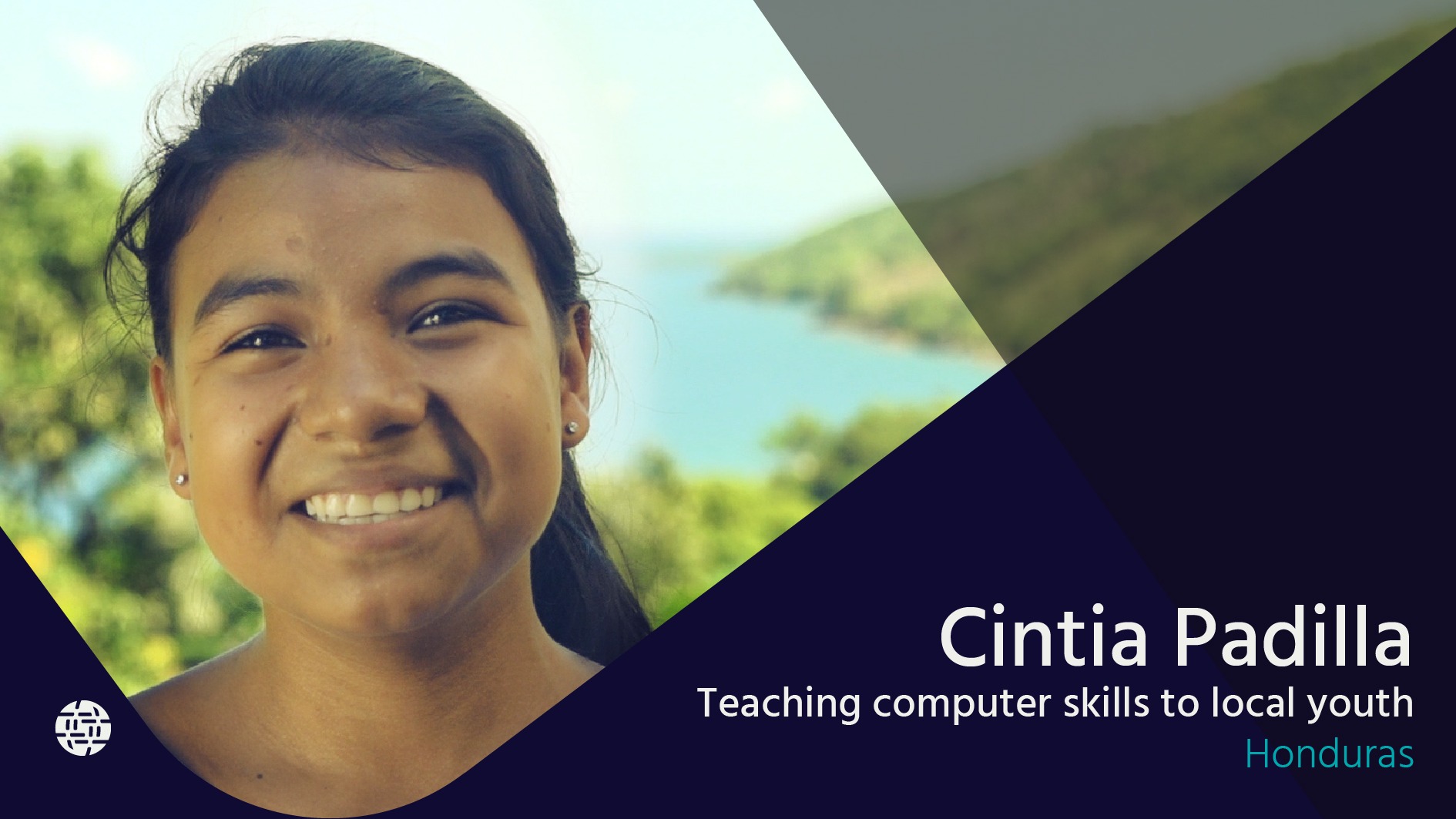
Teaching computer skills to local youth
Cinta’s passion for technology was sparked at a young age when she learned to use a computer at an IT training programme. This learning experience inspired her to teach other young people in her remote region in Honduras about computers and the Internet.
Cintia started teaching technology without having many of its benefits. Transportation was prohibitively expensive in her rural community, so she carried her personal computer for hours to work with children in neighbouring communities. Over time, she managed to teach 30 local children.
When members of the community and local organisations took notice of her work and offered their support, Cintia was able to create an e-learning platform, which has enabled her to scale her efforts and reach many more young people.
Diego Cordova, 15, Guatemala
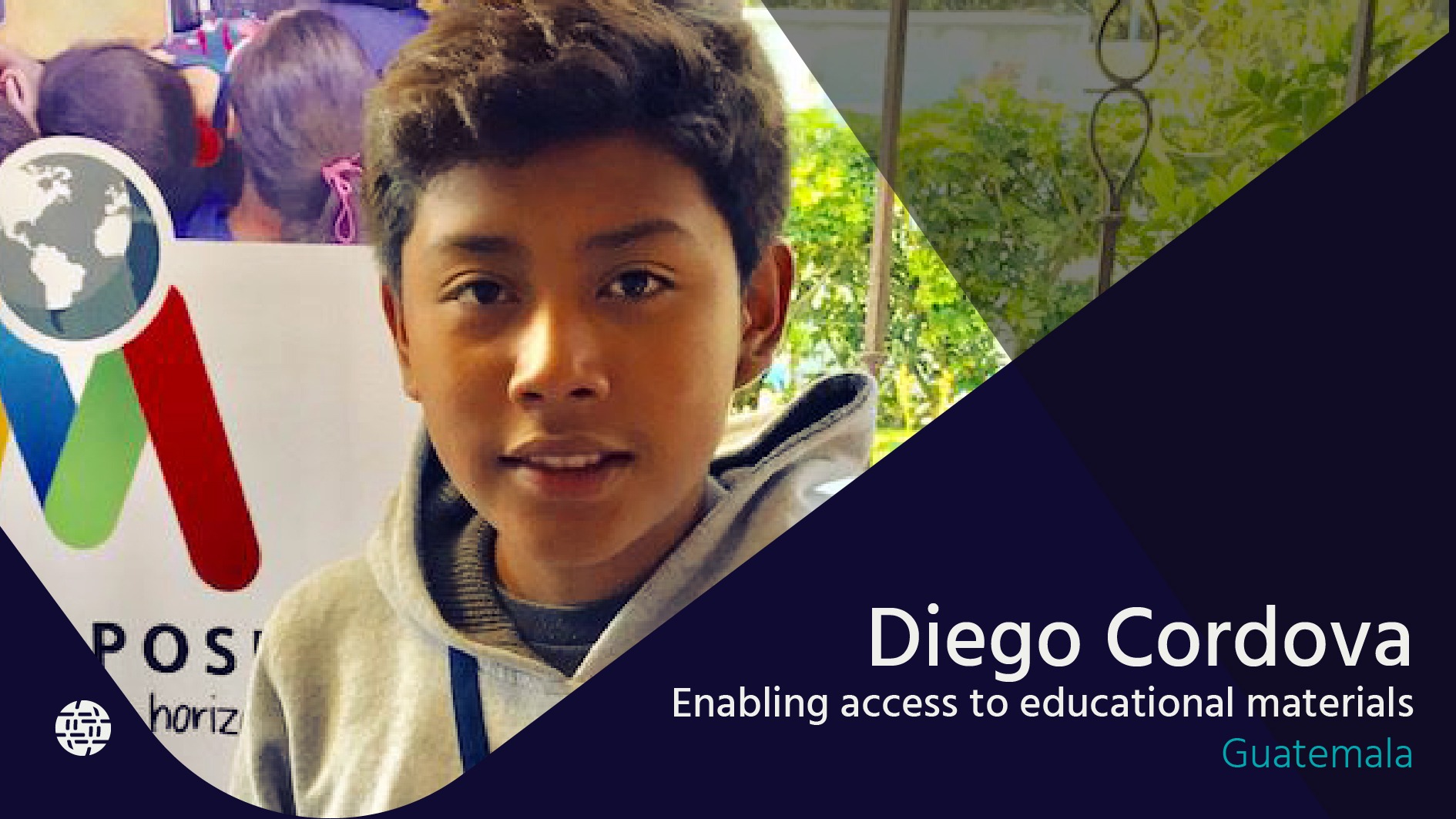
Enabling access to educational materials
Diego has been passionate about technology since he first encountered the Internet on an old tablet, at age 10. He immediately volunteered for an NGO that provides Internet-based educational resources to very rural schools lacking direct Internet access.
He now spends his school breaks volunteering in rural communities in Guatemala where he assists in transforming rooms full of old, unused computers into vibrant learning centers.
Diego is responsible for downloading online educational content onto the refurbished devices and ensuring that teachers and other school personnel can access the content to enhance learning in their classrooms.
The availability of free, open source educational materials on the Internet made it possible for Diego to learn about technology, and he is paying that forward by helping make educational resources available for other students.
Farah Abdi, 22, Somalia
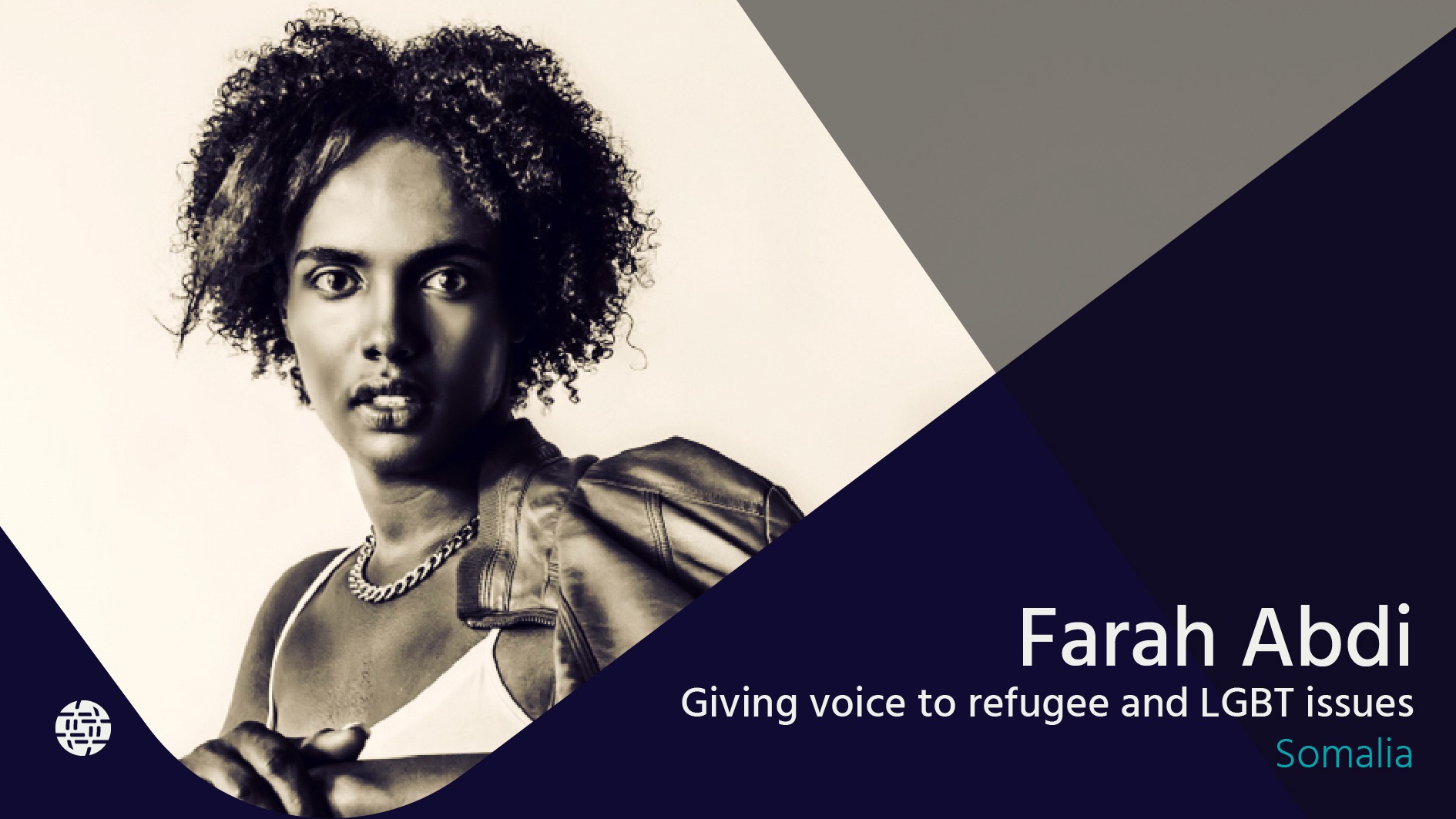
Giving voice to refugee and LGBT issues
As a transgender Somali refugee, Farah’s personal search for freedom and acceptance compelled her to use the Internet to share her story. In her weekly blog for one of the largest newspapers in Malta, Farah puts a human face on issues affecting refugees and the LGBT community.
Her blog opened the doors to opportunities for Farah to speak at public events and advocate for justice and equality for all. She has addressed the European Parliament, where she talked about the importance of caring for underage refugees who make the arduous journey without their parents, as she did.
Farah also recently partnered with one of the largest child rights organisations in the world, TDH International, to create YouTube videos advocating for the rights of refugee children on the move. The videos have been viewed more than 22,000 times.
James Beaumont, 25, United Kingdom
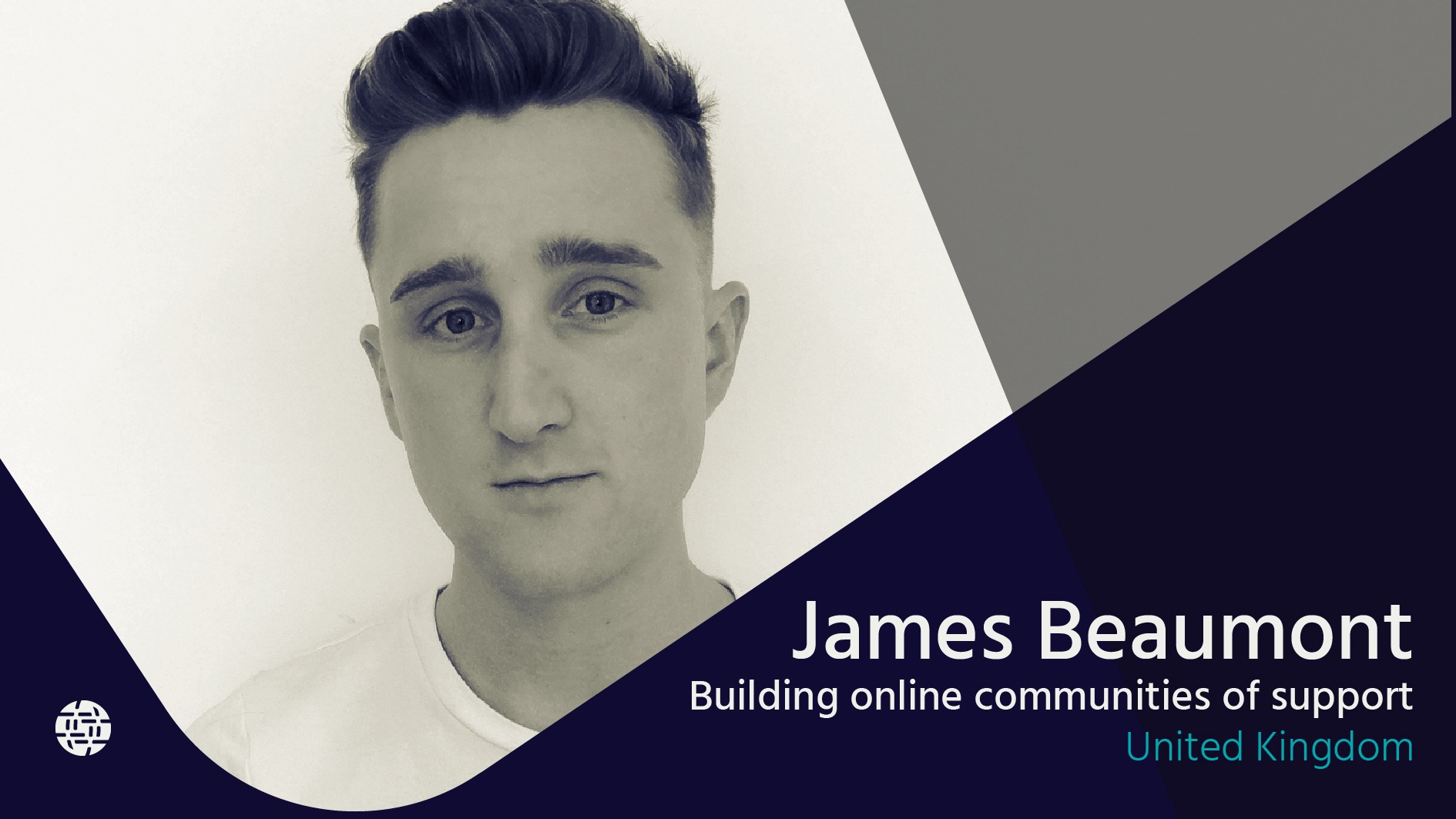
Building online communities of support
Growing up with Crohn’s Disease, James often felt that no one truly understood what he was going through. This inspired him to use social media to build a community to promote awareness and understanding about the chronic illness, and provide support to those with the disease.
James encourages participants to post a selfie with the year they were diagnosed, and uses humour to help people feel comfortable in sharing their stories. The content on the community and its website also educates those that don’t suffer from the disease about how it affects people’s lives.
To date, over 500 selfies have been submitted and James’ social media community, Instacrohns, is growing fast. There are now over 10,000 followers across Instagram and Twitter, as well as a dedicated website and related events to bring the online community together.
Jazmin Fallas Kerr, 23, Costa Rica
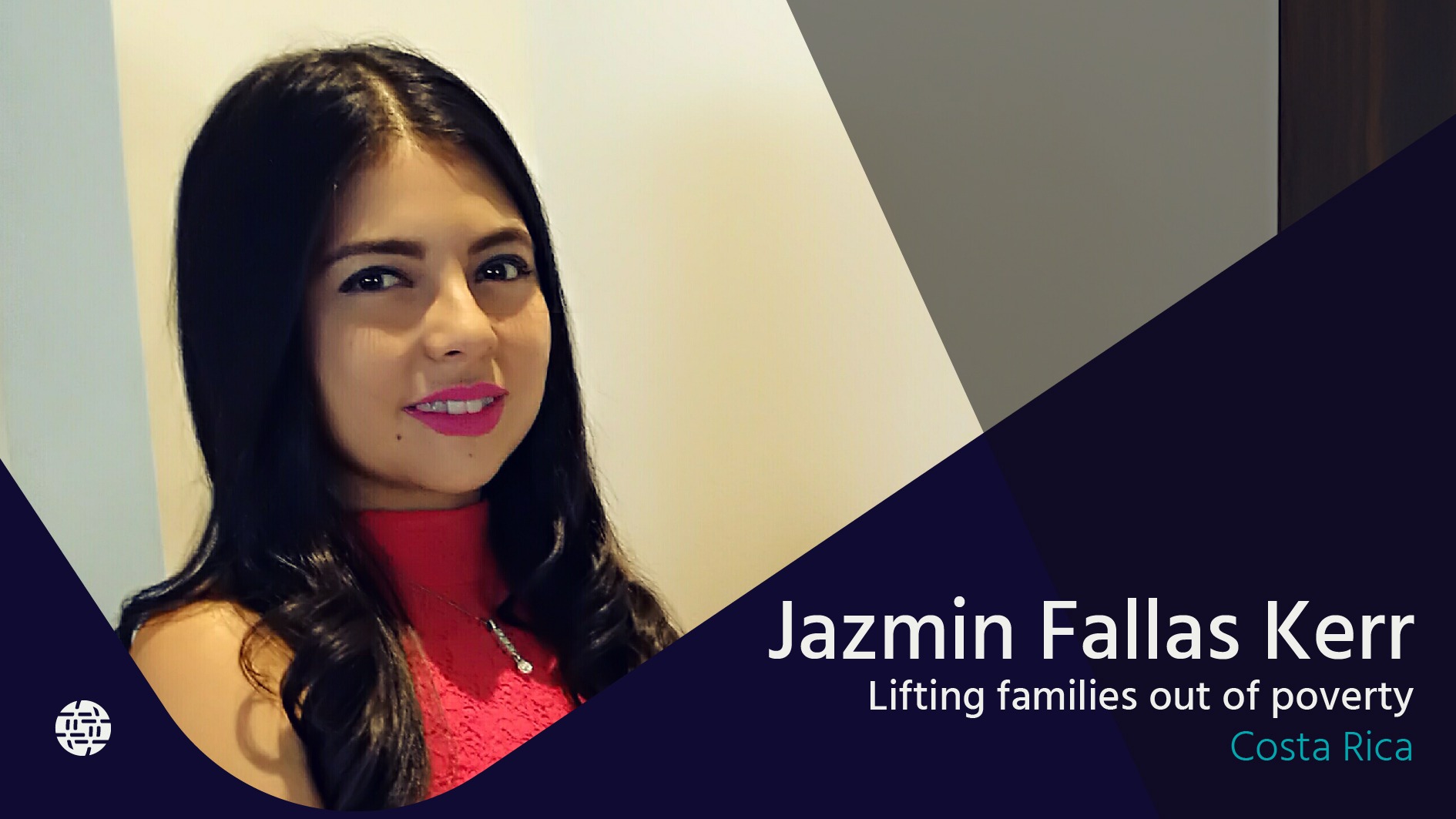
Lifting families out of poverty
In Jazmin’s Costa Rican hometown of Desamparados, four out of every ten families led by women live in poverty. Jazmin’s own experiences growing up motivated her to find a solution to this societal issue.
She created a web-based marketplace for crafts, hyenastorecr.com, allowing mothers who are artisans to sell their work at a fair-market price. This allows them to earn income without having to take time away from their families. By the end of 2017, the site will feature the handicrafts of more than 50 local women. Jazmin plans to enhance the platform by offering additional tools of empowerment, including structured business courses for women.
Juma Baldeh, 25, Gambia
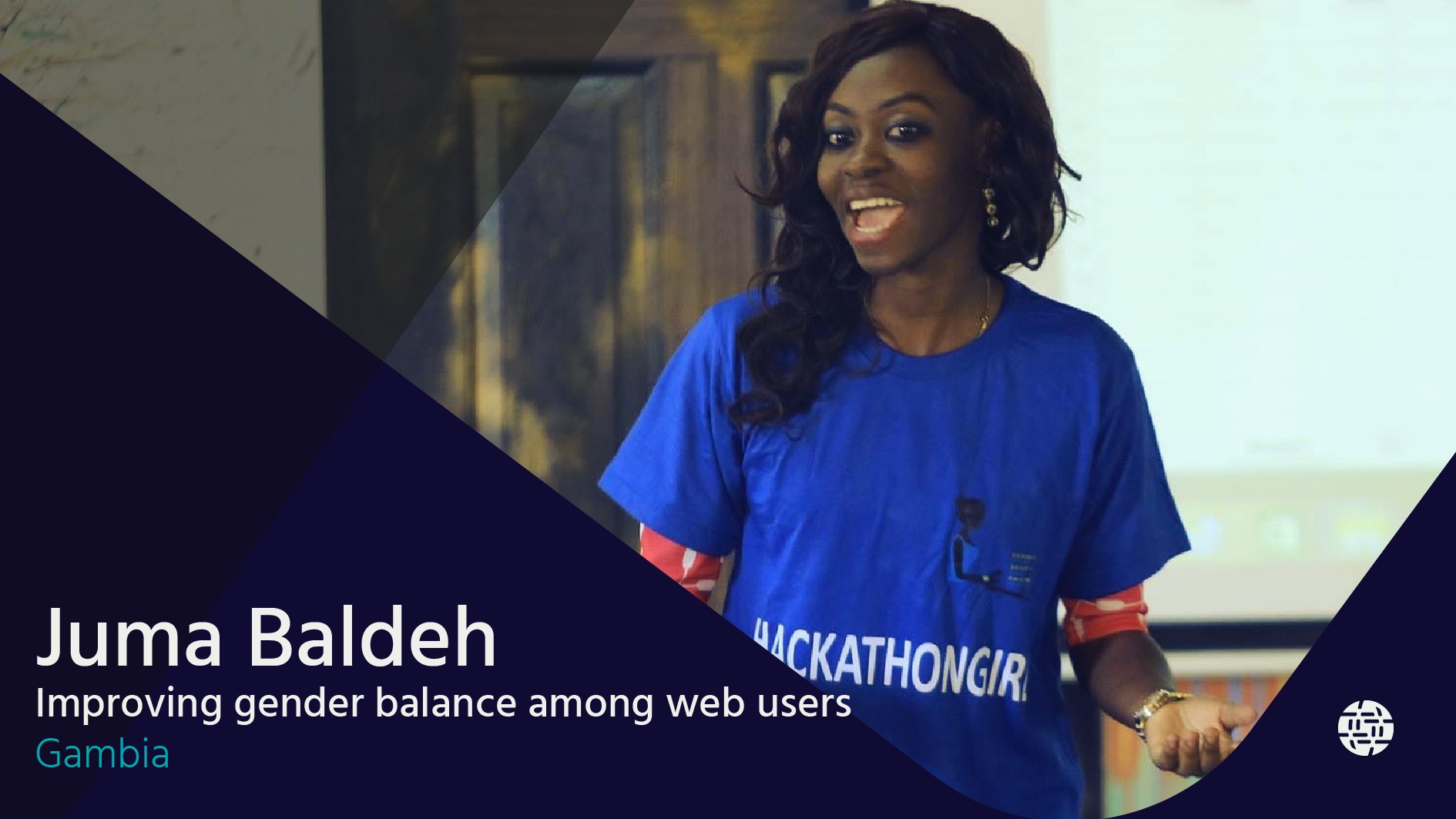
Improving gender balance among web users
Juma challenged the gender technology gap in her home country of Gambia by creating a technology club for girls between the ages of 8 and 18.
The club was developed in coordination with Mozilla, a nonprofit that supports the Internet as a global public resource. Club members receive six months of free weekly classes on web literacy and basic computing skills. Beyond web education, the club unites girls in a safe space where they can freely collaborate, learn, and share experiences.
With more than 40 girls currently enrolled in the club, Juma is shifting the social stigma about gender and IT, one girl at a time.
Kate Ekanem, 23, Nigeria
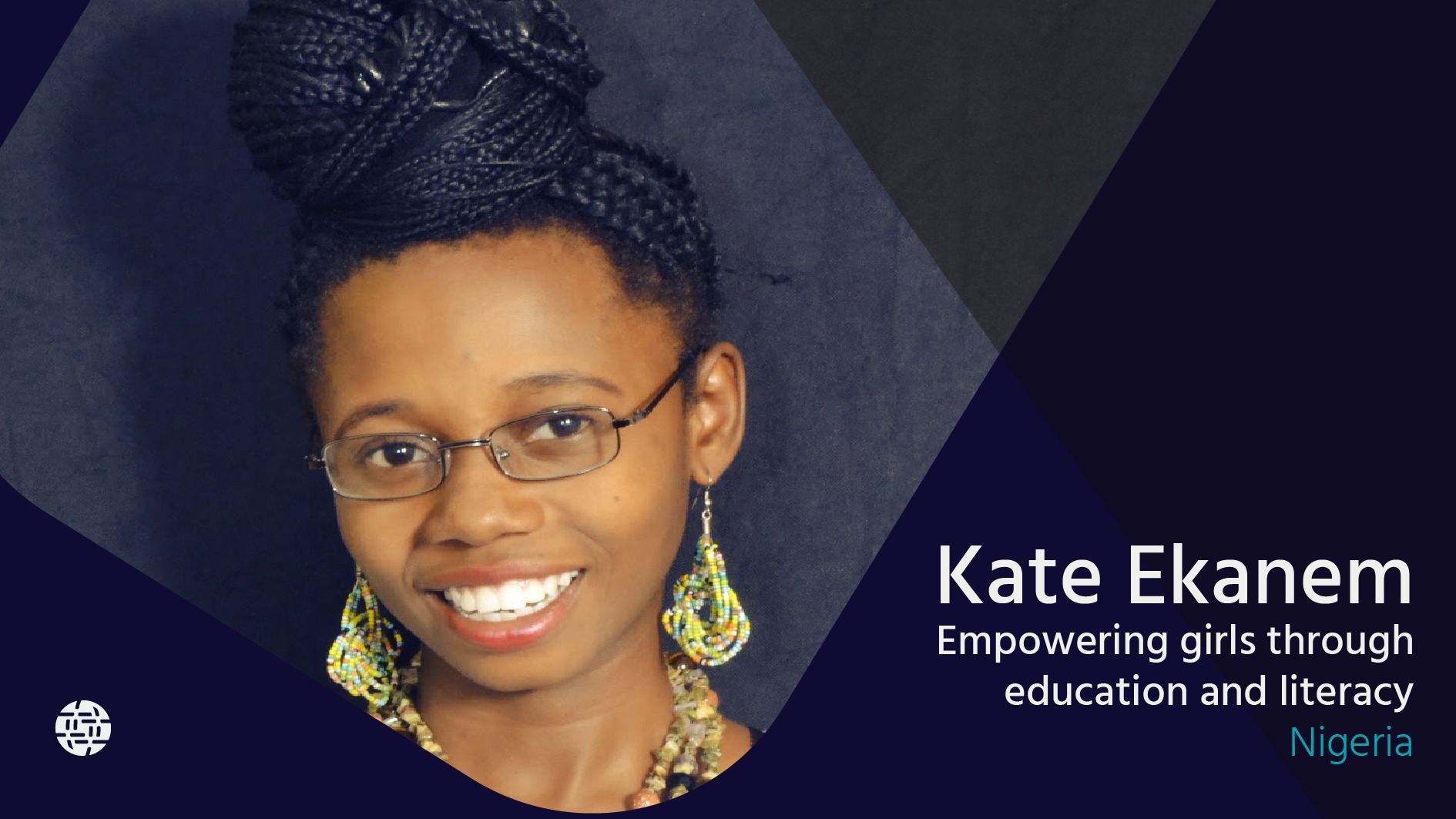
Empowering girls through education and literacy
As a result of her own childhood experiences, Kate committed herself to elevating the prospects of Nigerian girls by starting the Kate Tales Foundation. This literary non-profit organisation promotes education for girls, the empowerment of women, and the development of emerging writers. Kate’s goal is to ensure that girls in Nigeria’s rural communities have access to quality education by providing them with scholarship and mentorship programmes.
Since starting the foundation, Kate has organized more than 20 projects in promotion of girls’ education and has successfully empowered more than 5,000 girls and women across Nigeria with entrepreneurial skill and education opportunities.
From learning about business strategy to recruiting her team of coordinators to identify her beneficiaries, Kate has relied on the Internet at every step throughout her journey of empowering girls.
Kate Green, 24, United Kingdom
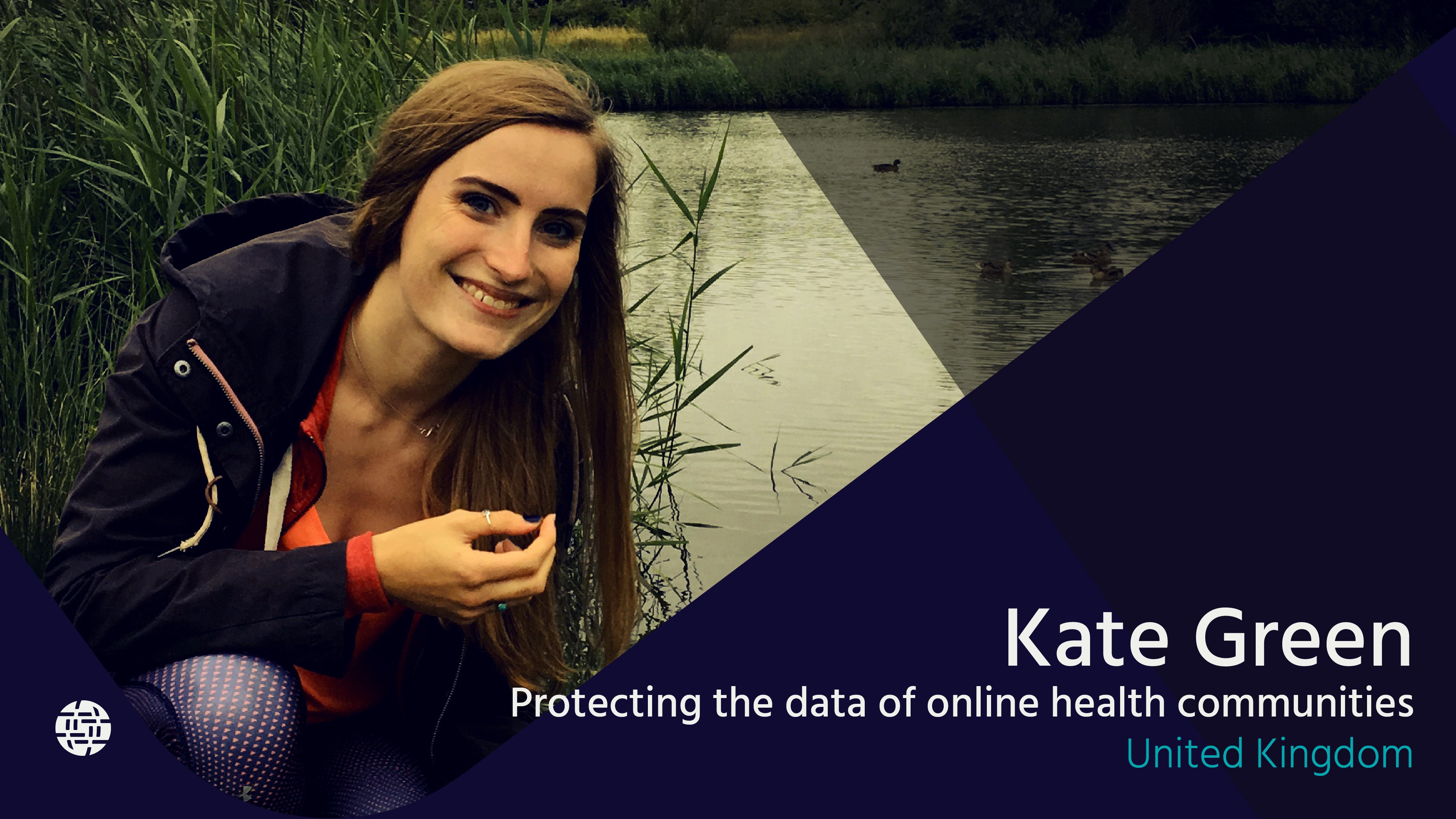
Protecting the data of online health communities
Kate was upset to learn that popular online support groups for individuals suffering from chronic illness often share the personal data of users with advertisers and pharmaceutical companies. This discovery motivated Kate, who personally looked to these online communities for support for her own health issues, to help fellow members make their own informed decisions about sharing personal information.
Kate designed and delivered an “underground” online privacy class, providing Internet users with the tools to determine for themselves what trade-offs they are willing to make between privacy and the benefits of specific websites and social media sites. She also works directly with youth to ensure they are proactive in their own online representation. Kate equips teachers and community leaders with educational resources to further spread awareness of online rights and Internet privacy concerns.
Linda Patiño, 24, Colombia
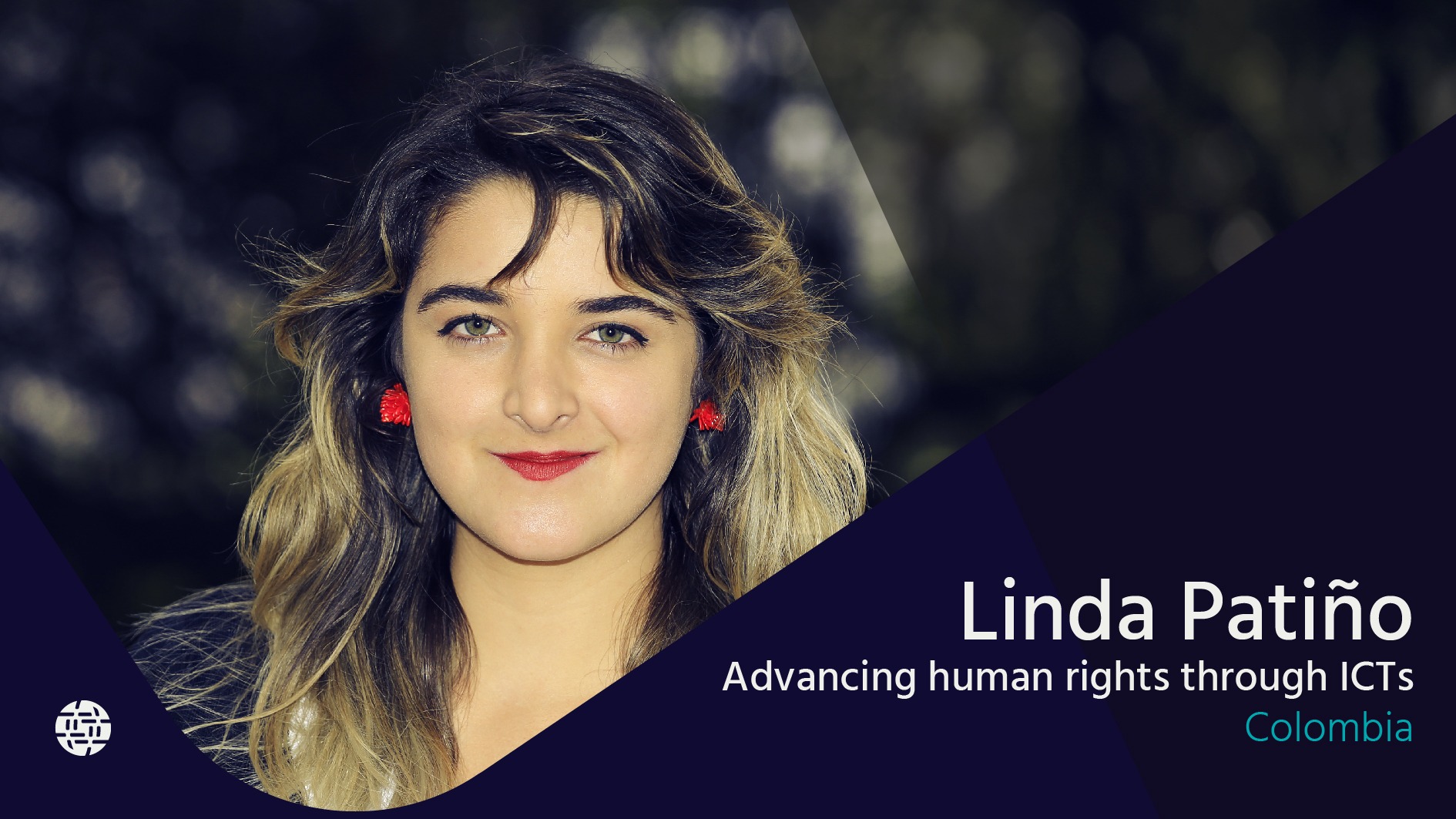
Advancing human rights through ICTs
Through her own experience, Linda realised that Internet users may not know how to react to digital violence. This resulted in her passion for using ICTs to promote gender equality, Internet safety, freedom of opinion, and democratisation of knowledge.
In her work for the social organisation Colnodo, she created digital strategies to reach and engage with key audiences, including women, youth, and social activists. Linda also supported the Take Back the Tech campaign in Colombia, for which she developed a social media strategy to support an intense 16 days of activism. The campaign earned nearly two million impressions on Twitter and reached 500,000 people on Facebook.
Through the Internet, Linda seeks to have even bigger impact for social causes and digital rights by disseminating information and creating interaction with people regardless of distance.
Mariano Gomez, 23, Mexico
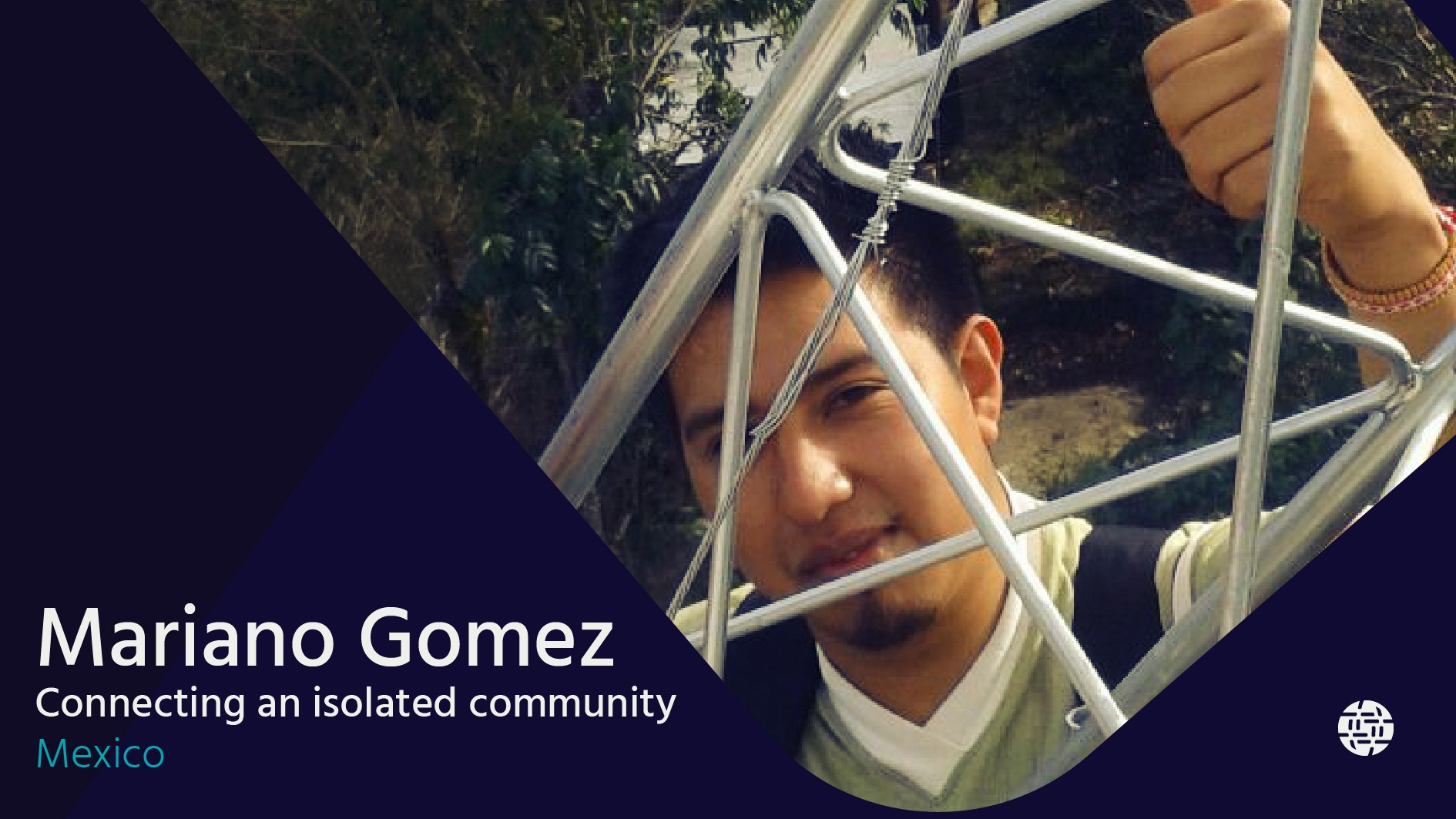
Connecting an isolated community
Mariano’s father, a farmer, saw the importance of connectivity for the education of his children. In a region where there had previously been no electronic communications, Mariano’s father developed a satellite connection for his family. Motivated by his father’s achievements, Mariano wanted to share the connection with the community. With no formal technical training, he created a wireless network and linked it to the satellite connection.
Some years later, Mariano and a group of colleagues founded a collective, Ikta K’op, to extend this initiative even further. Today, more than 600 people can access the network, providing them with telephony, messaging services, and Internet. Mariano has involved the whole community in working together, educating each other, and expanding the initiative.
Mary Helda Akongo, 23, Uganda
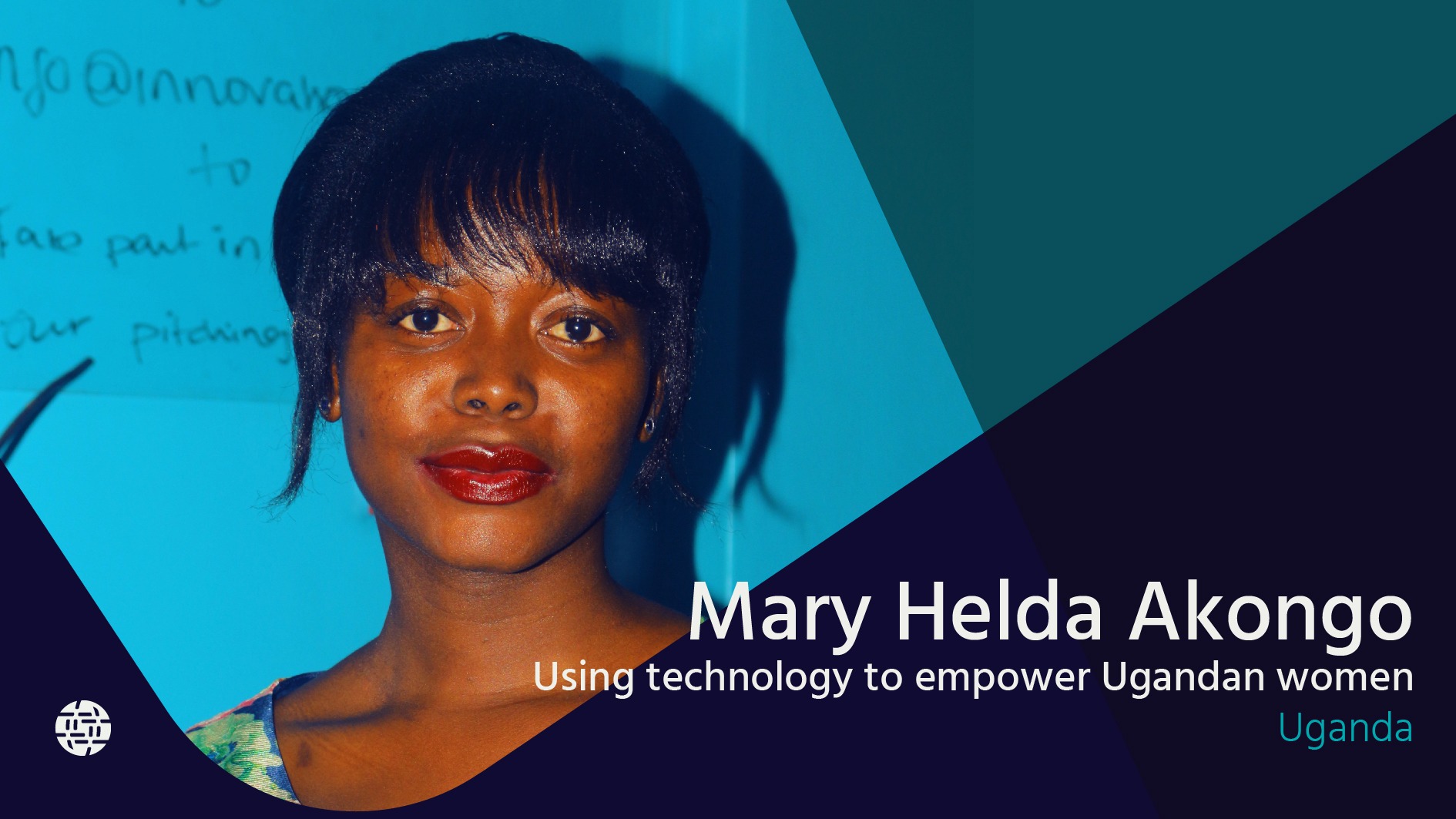
Using technology to empower Ugandan women
Mary sees the promise of female entrepreneurs for economic development in the community, the country, and Africa at large. After working as a volunteer with Zimba Women, which uses technology to create sustainable futures for African women, she was inspired to become a programme manager for the organisation.
She helps women and girls to participate in the Ugandan economy by providing them with mentorship, business coaching, and skills training. She writes online articles and blogs and creates social media content focused on the issue of female empowerment. Last year, she helped organise a technology business summit that brought together over 350 women from East Africa.
Mary is motivated by the determination of the women she works with to overcome gender-related constraints in Africa.
Naitik Mehta, 22, India
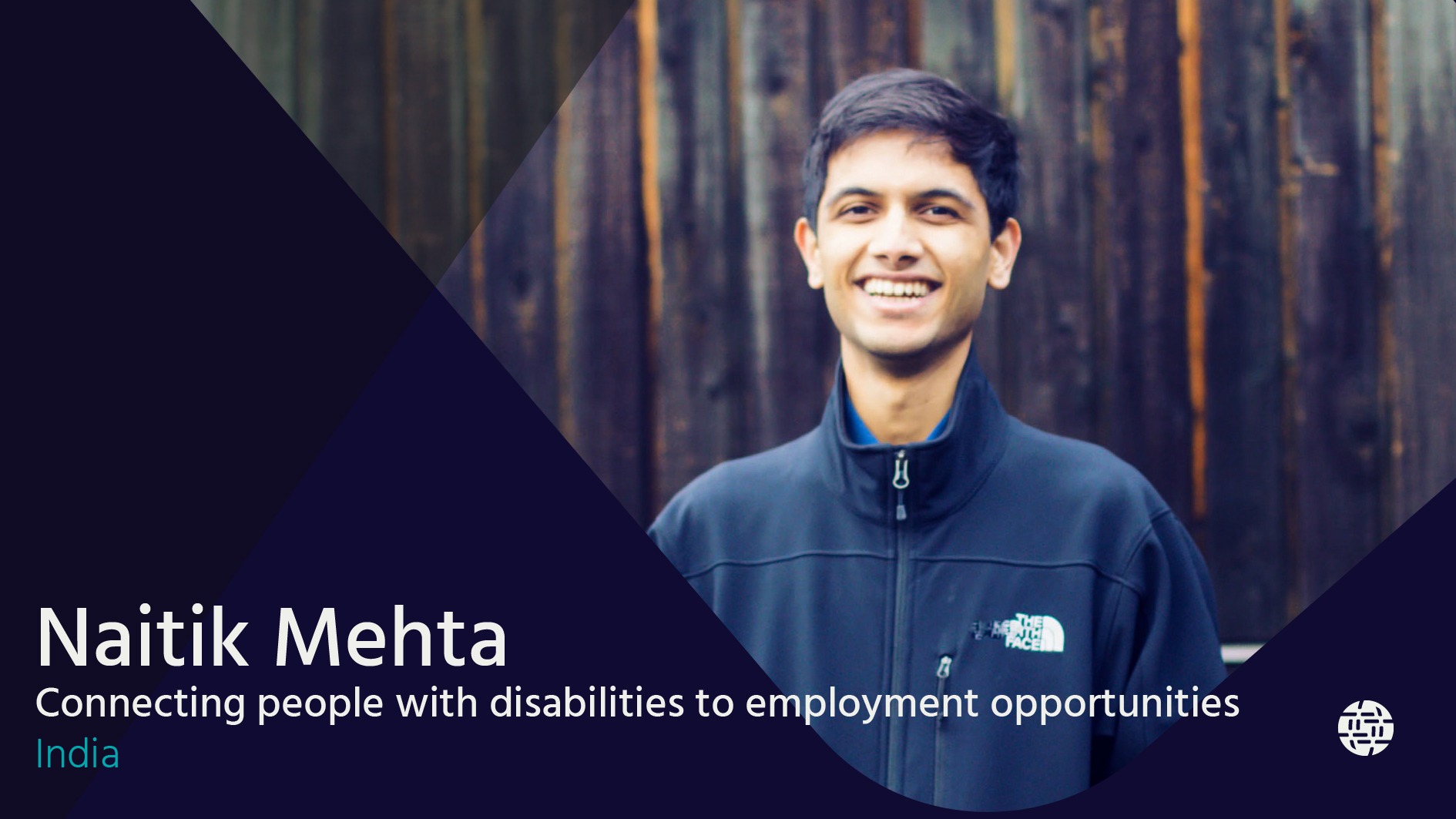
Connecting people with disabilities to employment opportunities
Naitik is an advocate for equal opportunity and social inclusion. He is the co-founder of NextBillion.org, a social enterprise that is bridging the gap between people with disabilities and the technology industry. The organisation offers mentorship programmes that connect people with visible and non-visible disabilities to both industry mentors and job opportunities.
Naitik and his team have completed two mentorship cohorts with 70 participants matched with mentors from top companies such as Google, Microsoft, Facebook, PayPal, Palantir, and Uber. NextBillion.org’s mission is to empower people with disabilities to reach their full potential, and they aim to complete 11,000 mentorships by 2019.
With new local mentorship cohorts launching across North America, Naitik and his team are focused on leveraging the power of the Internet to provide employment opportunities for world’s largest minority.
Nilay Kulkarni, 17, India
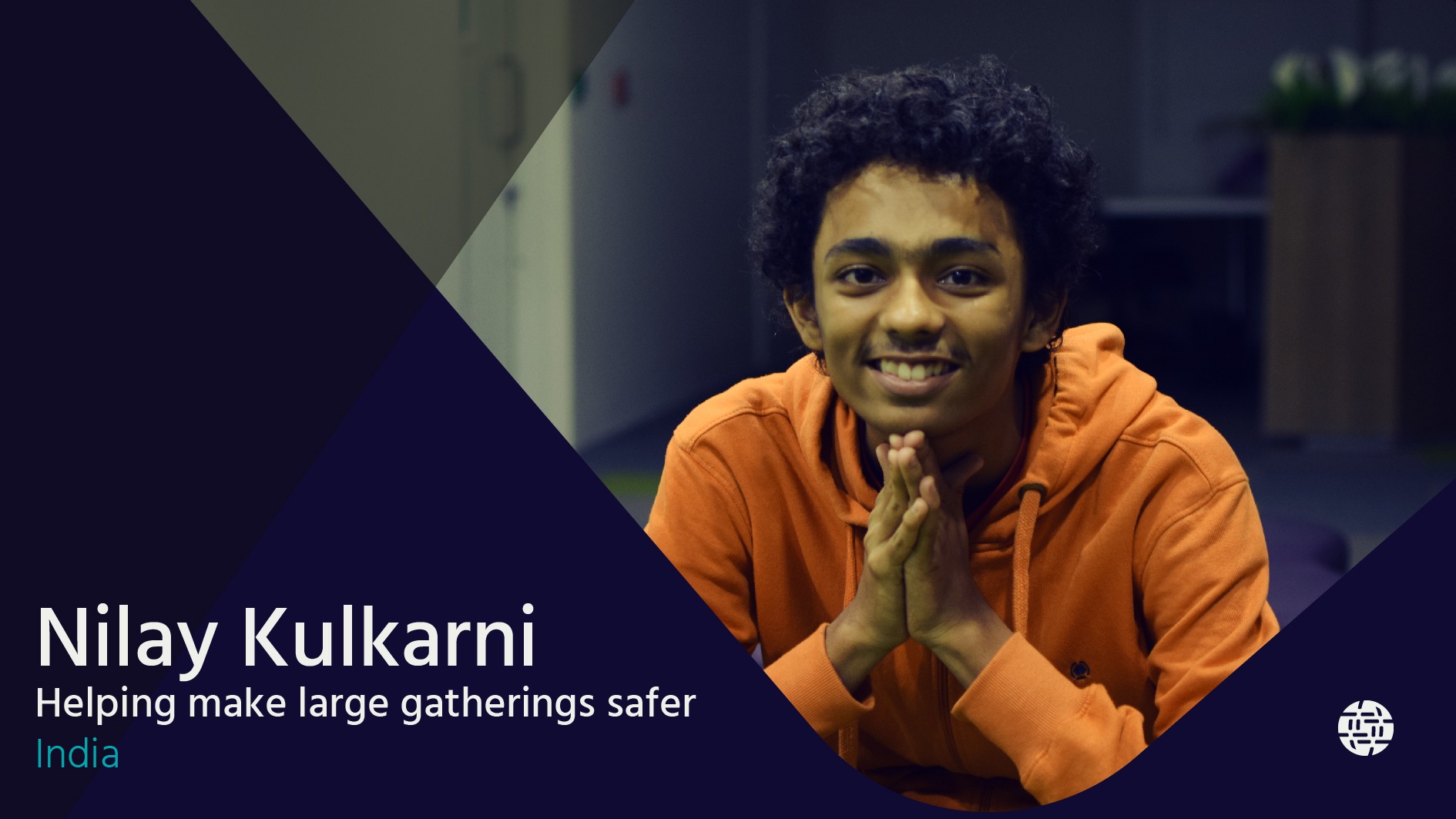
Helping make large gatherings safer
Nilay, a self-taught programmer, used his skills to build a simple solution to prevent human stampedes, a common yet avoidable risk in India. This risk hit close to home when 39 people lost their lives during a panicked rush at a religious festival in his town of Nashik.
Motivated by a sense of responsibility towards his community, Nilay developed a solution that counts the number of people that step over a mat during a certain period of time. The mat, which can be narrow as a door or as wide as a road, transmits foot-traffic data to local police authorities in real-time via mobile phone, allowing them to intervene as needed.
Nilay is planning to expand the application to large-scale crowd situations, such as malls, concerts, sports events, temples, and tourist attractions, where there can be more than over 100,000 visitors per day.
Paula Côrte Real, 24, Brazil
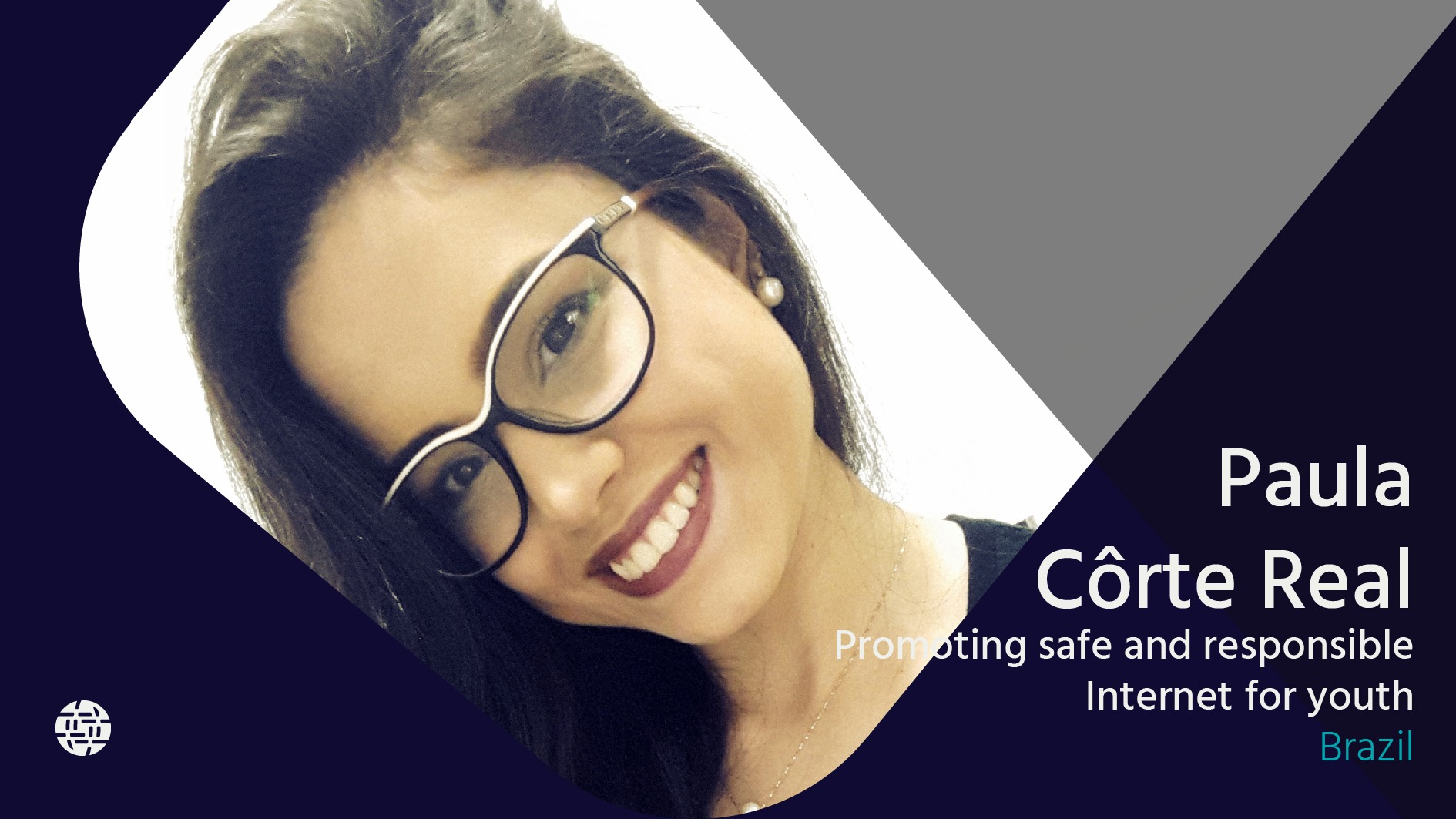
Promoting safe and responsible Internet for youth
Paula wants to help create a safe and secure Internet experience for Brazil’s youth through her involvement in several youth engagement programmes. One of those, led by the Commission of Information Technology Law from the Brazilian Bar Association in Pernambuco, helps students understand how to protect themselves while using the Internet. It also tackles current issues such as cyberbullying and cyberstalking. To date, the project has reached approximately 2,000 public school students between the ages of 15 and 18.
Through her work on this project and others, Paula enables open dialogue on Internet safety among students, parents and teachers. A member of the Youth Observatory and of the Gender Youth Initiative, she also encourages young people to “pay it forward” by sharing what they have learned with their peers.
Poornima Meegammana, 24, Sri Lanka
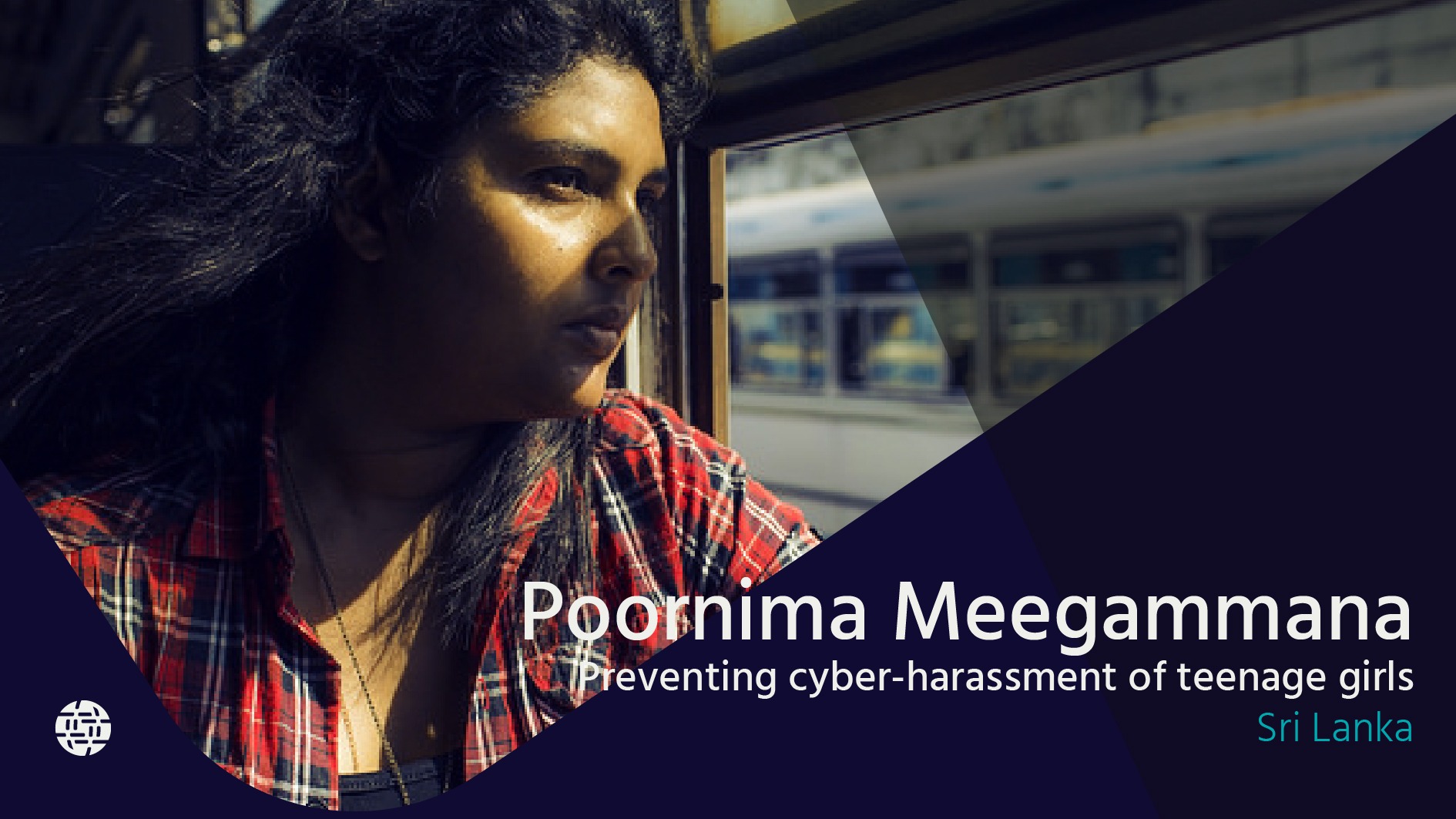
Preventing cyber-harassment of teenage girls
Poornima founded the Respect Girls on Internet project out of concern for her teenage peers in Sri Lanka, many of whom face online hostility. Her experience is that teenagers typically start using the Internet without any knowledge about cyber safety or privacy.
Poornima and her team of volunteers worked with partners to make digital content on Internet safety available in local languages to ensure accessibility for all. One of the project’s most significant outputs is a Cyber Privacy e-Handbook, for teenagers new to the Internet, as well as teachers and parents.
Through her project, Poornima has enabled safer and more respectful Internet use, helped support victims of cyber harassment, and developed a network of youth committed to preventing future harassment. She is solving a problem rooted in the Internet by using the Internet.
Valentinos Tzekas, 20, Greece
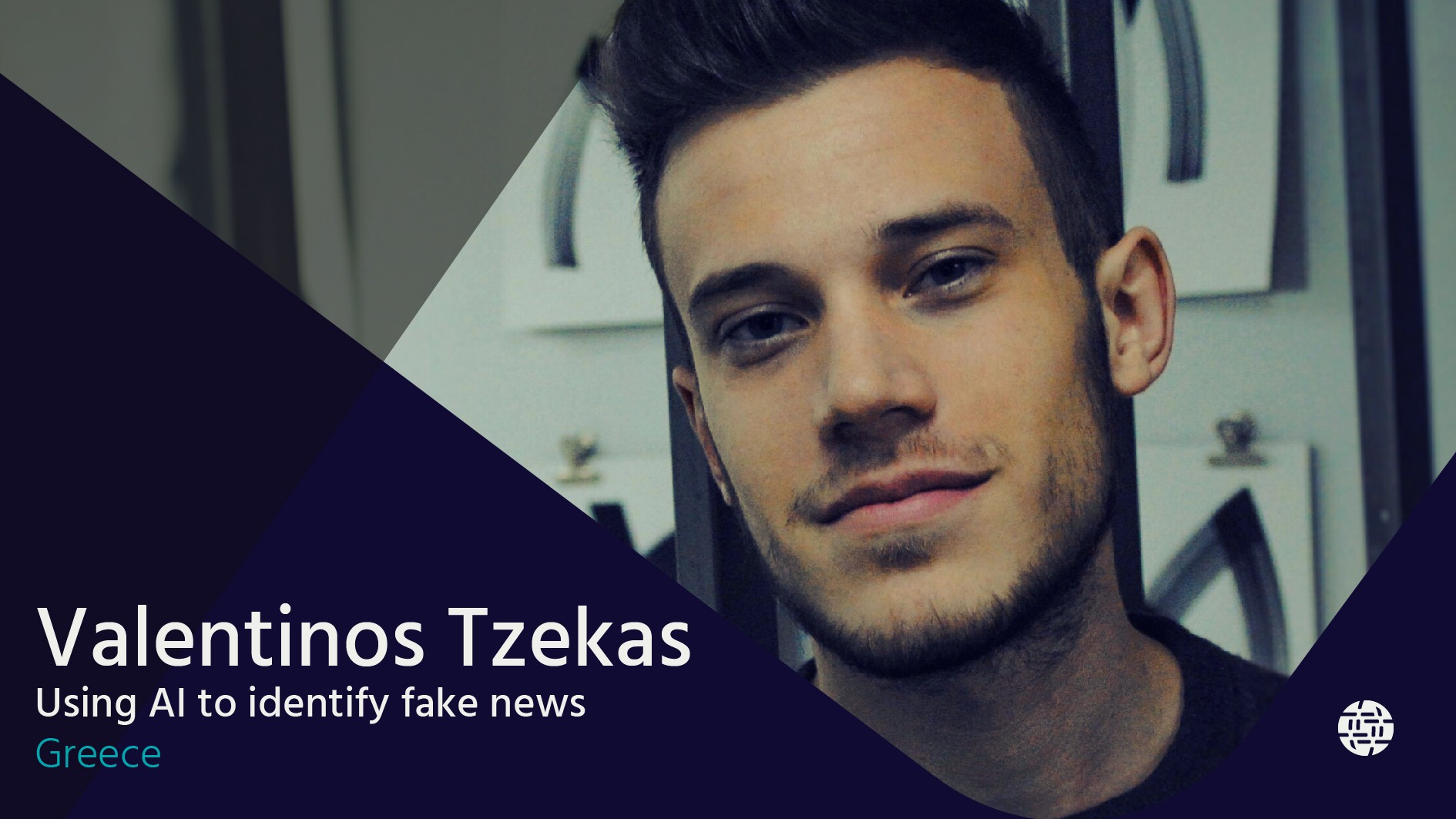
Using AI to identify fake news
“Fake news” is a problem worldwide. Valentinos saw an opportunity to reduce the spread of this misinformation. He created FightHoax, a news-analysis algorithm that people can use to fact-check Internet content within seconds, without needing professional journalistic skills.
FightHoax uses the latest technologies in Artificial Intelligence (AI), Machine Learning, and Natural Language Understanding to determine if an article can be trusted. The algorithm evaluates the language in an article to determine if it is opinion-based, contains a clickbait title, or is poorly written, among other features. It has an 89% accuracy rate in identifying fake news.
Valentinos believes the Internet should be a place where everyone can share their feelings and experiences and have the right of free speech. He created an innovative solution to help identify false news without censoring information.
Honourable Mentions
Makkiya Jawed, Pakistan
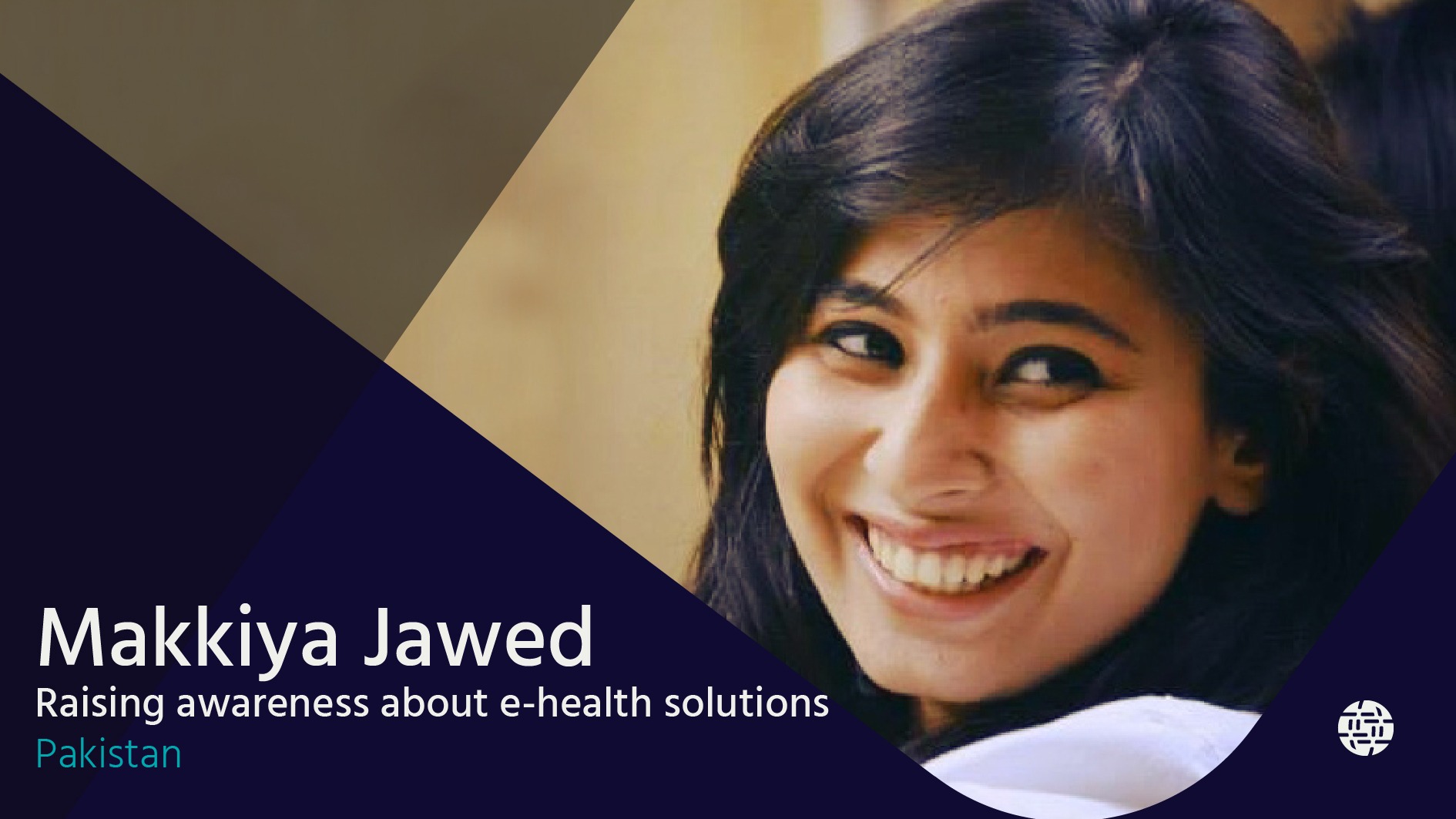
Raising awareness about e-health solutions
For Makkiya, each day brings a new opportunity for better health for the underprivileged. She is the director of social enterprise at Sehat Kahani, a network of 15 health clinics throughout Pakistan. The clinics work to improve basic healthcare in low income communities faced with the challenge of having a large population but very few doctors. The Sehat Kahani clinics’ primary health services are enhanced by innovative, ICT-enabled treatment solutions. For example, patients can receive care via tele-consultation, e-prescriptions, and digital patient history management.
Makkiya plays an important role in ensuring communities are aware of and educated about this important health resource. She is passionate about community outreach, going door to door to share information, and hosting sessions with the elderly and youth.
Parker Woods, United States

Delivering Internet connectivity in the Arctic
Internet connectivity remains an issue in the Arctic region and in Parker’s home state of Alaska, well-known for its severe weather and harsh landscape. Working with his brother and co-founder, Fletcher, Parker founded the Arctic Web Foundation to improve Internet quality, connectivity, and affordability in rural areas throughout the region.
They hope to enable overall economic development in the area by successfully delivering improvised Internet connectivity. The Arctic Web Foundation is in the early stages establishing community networks, addressing last-mile issues in rural areas, and starting an IXP. Parker and Fletcher seek to build a model that others facing the same challenge can implement in their regions.
Radwa Hamed Soliman, Egypt
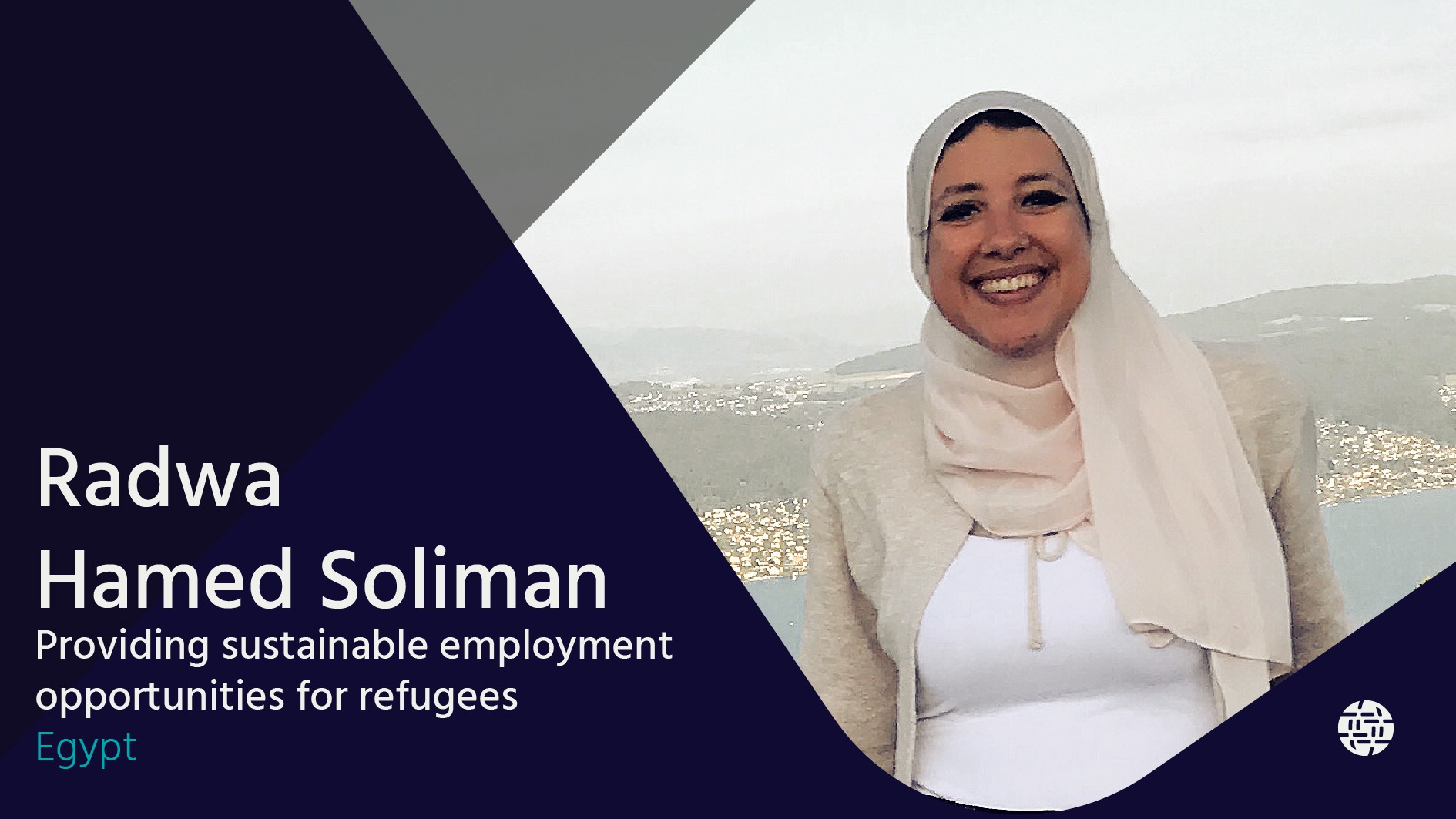
Providing sustainable employment opportunities for refugees
Radwa’s platform, Planet Home, will help vulnerable refugee populations easily find work opportunities well-suited to their skills. Once registered on the app and verified, users are connected to a job portal where they can learn about job opportunities in their native language. The app also offers a form of e-wallet which enables users to either receive monetary payment or earn higher-value points for use at designated retail partners to purchase food, clothing, or medicine.
Helping to shine a light on the crisis of unemployment among the refugee population in the Middle East, Radwa’s innovative digital solution helps create new sources of sustainable income. Radwa uses the Internet to create entrepreneurial ideas that help shape the world and hopes to expand the application of her platform for other underprivileged communities such as slums.
News and Press
Download or share the 25 under 25 Press Release.



























